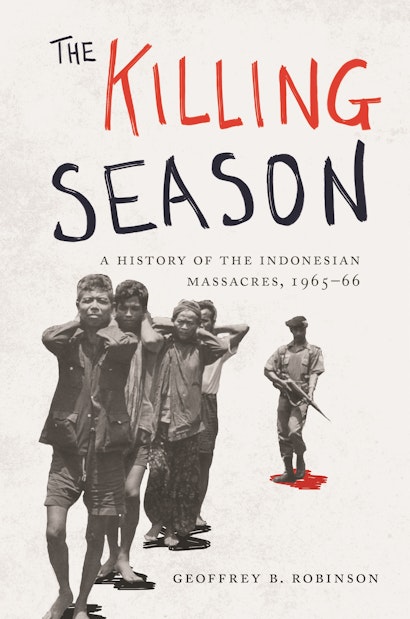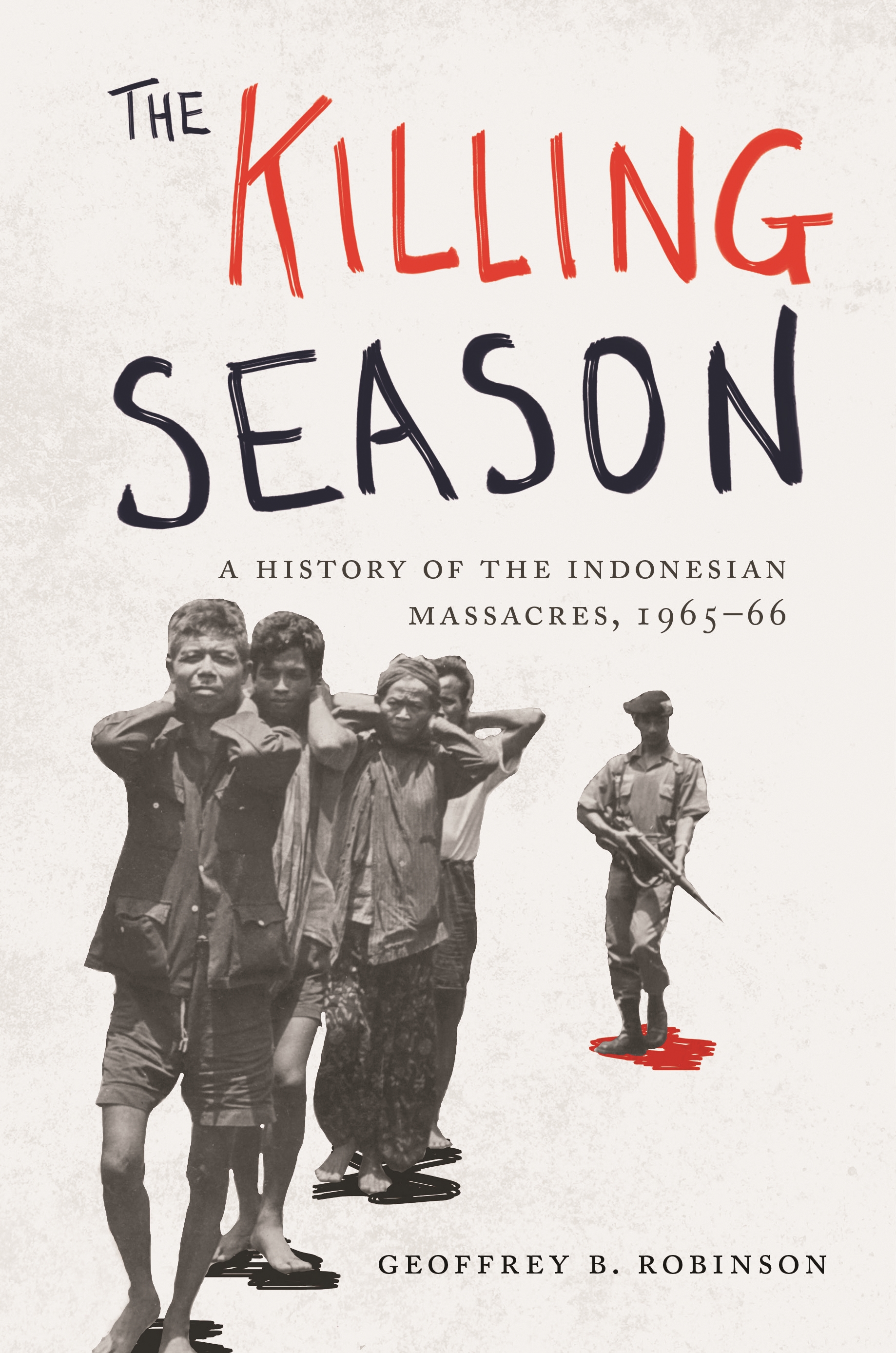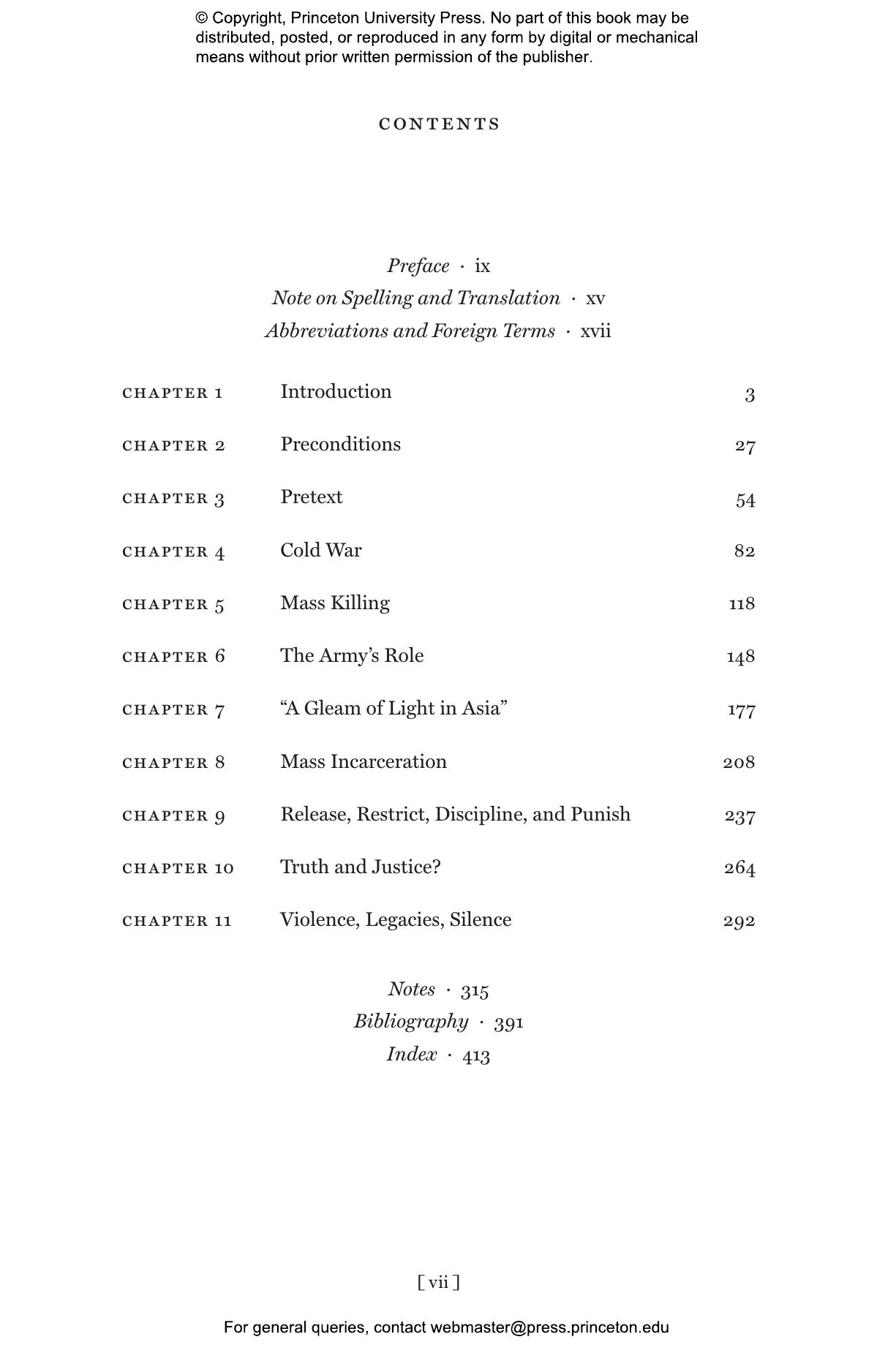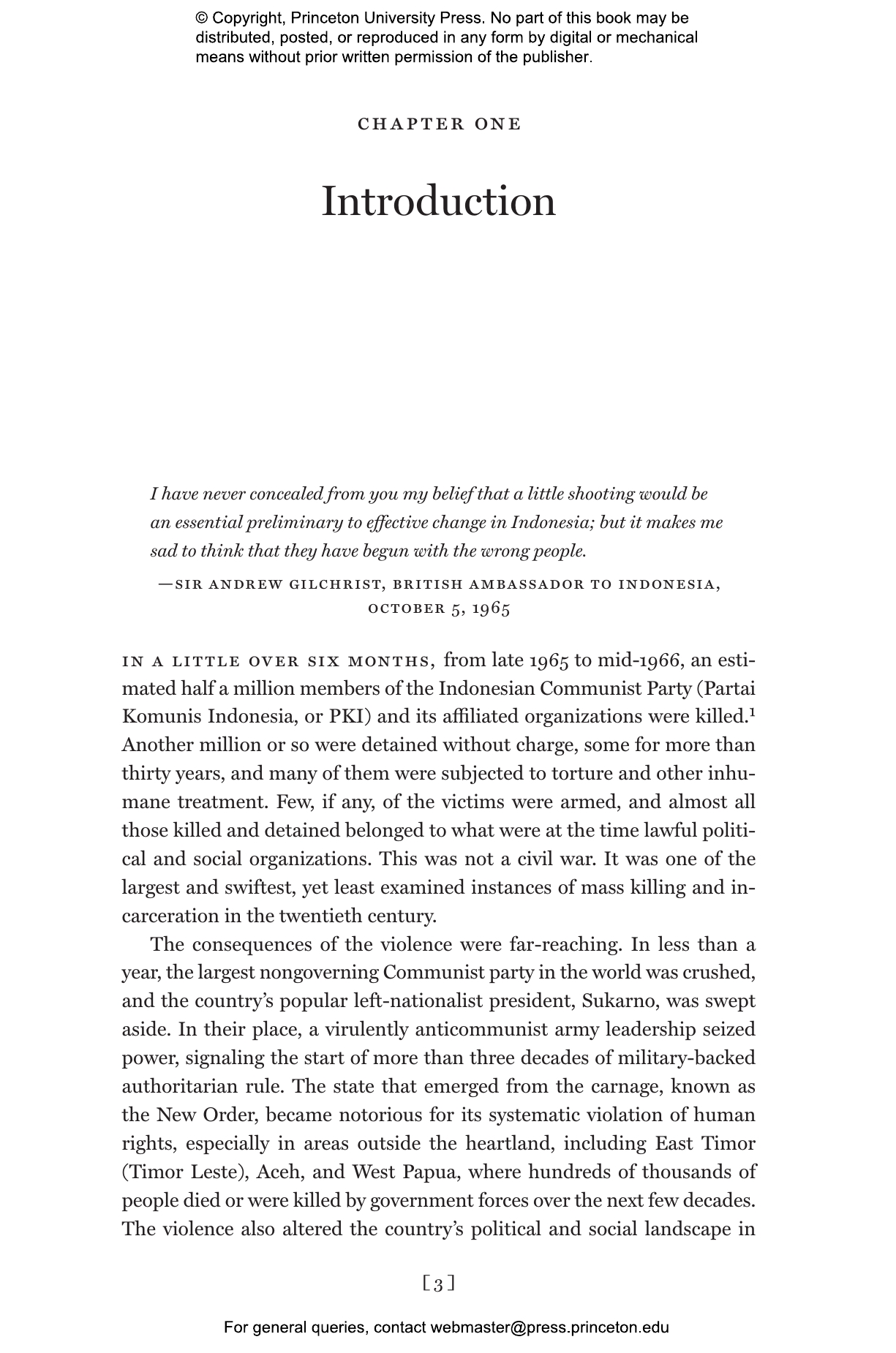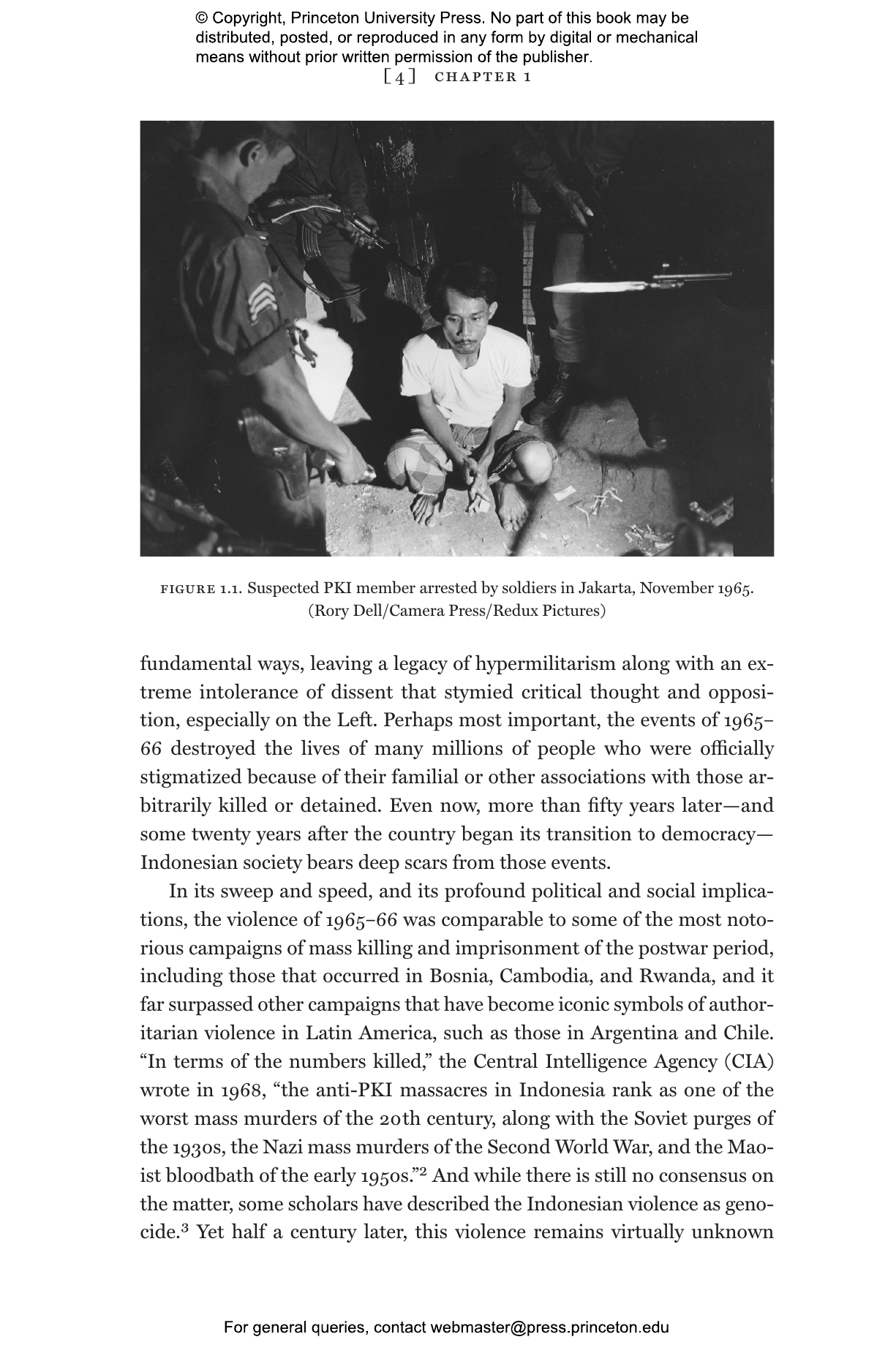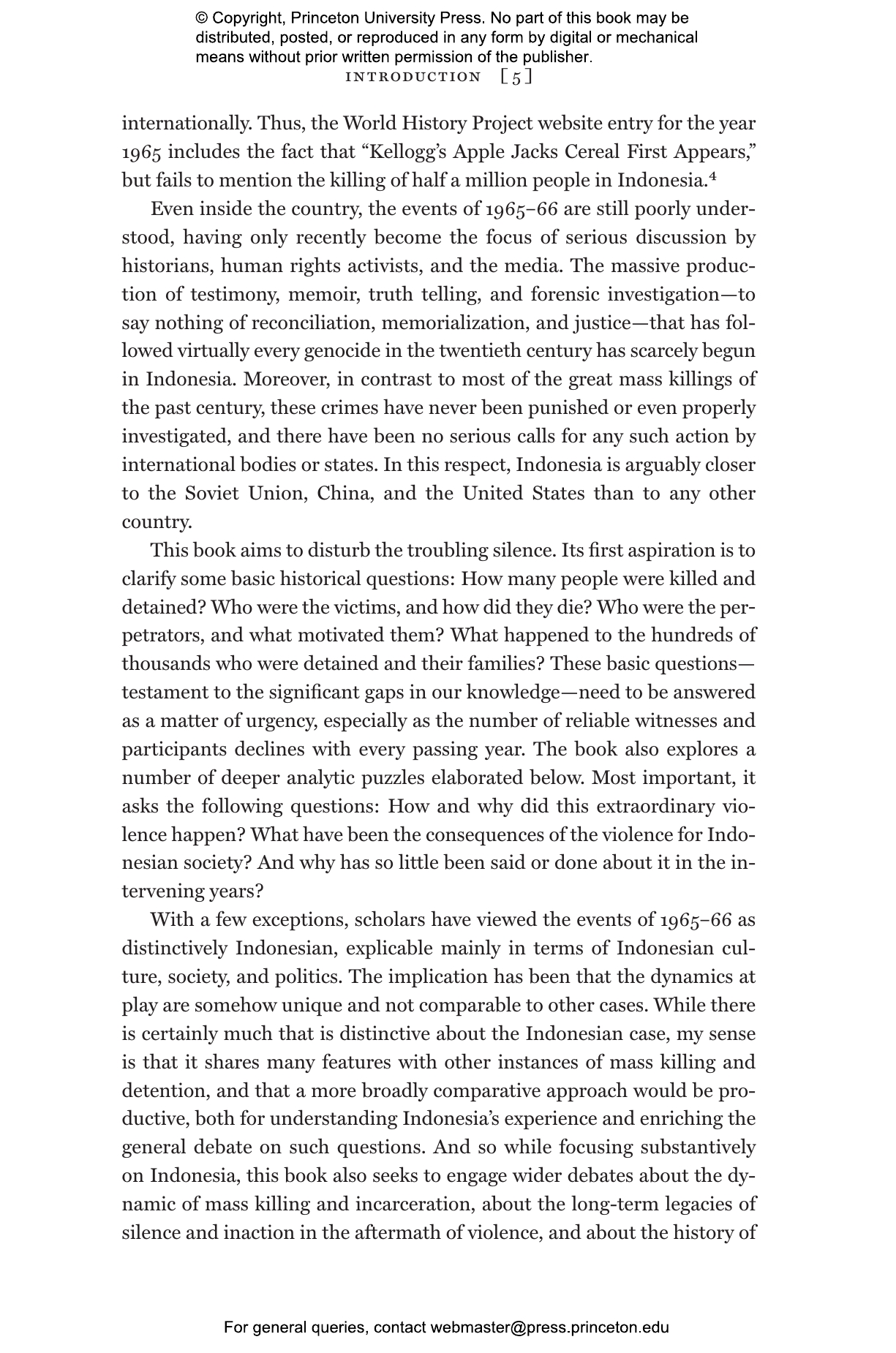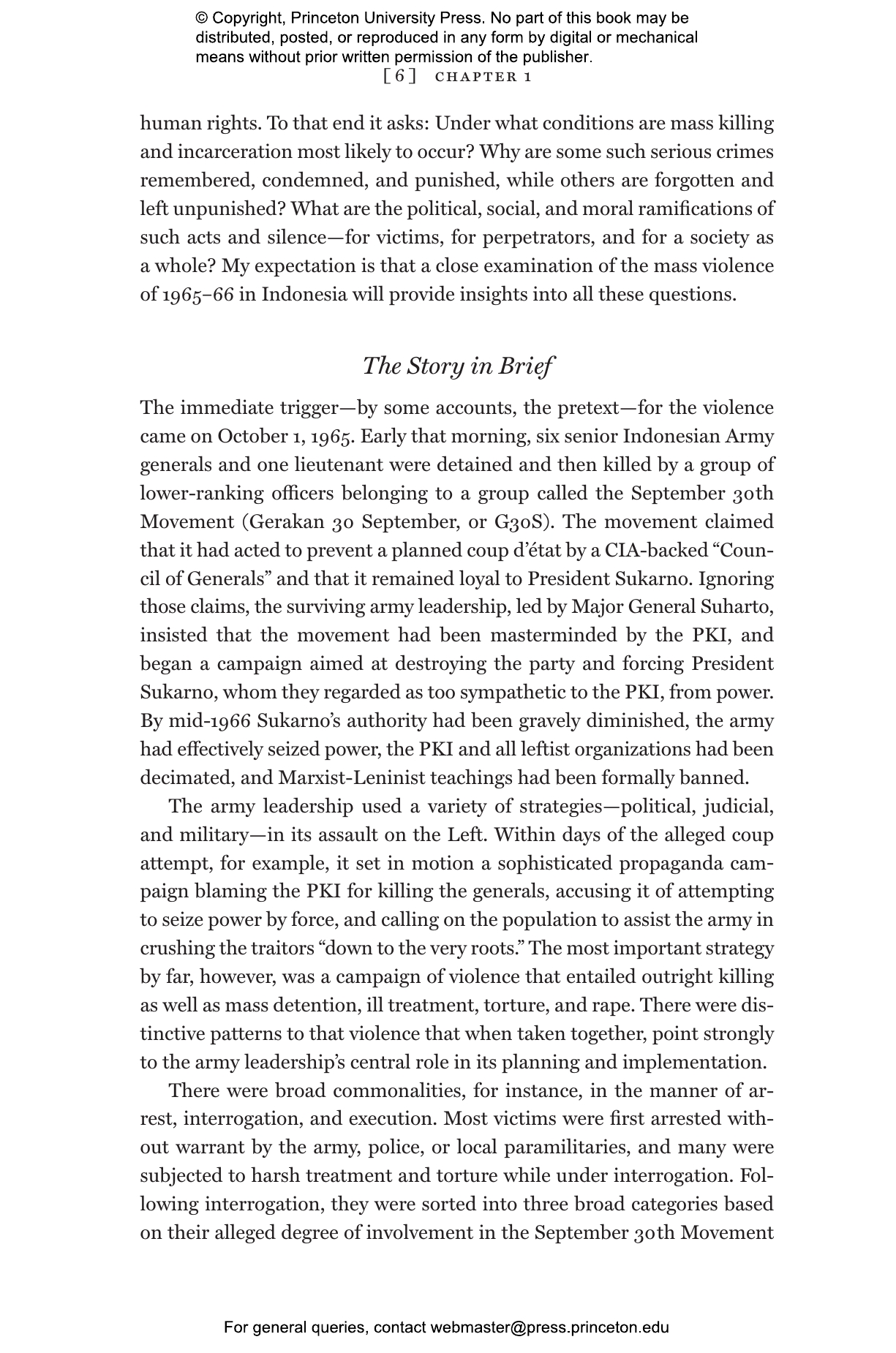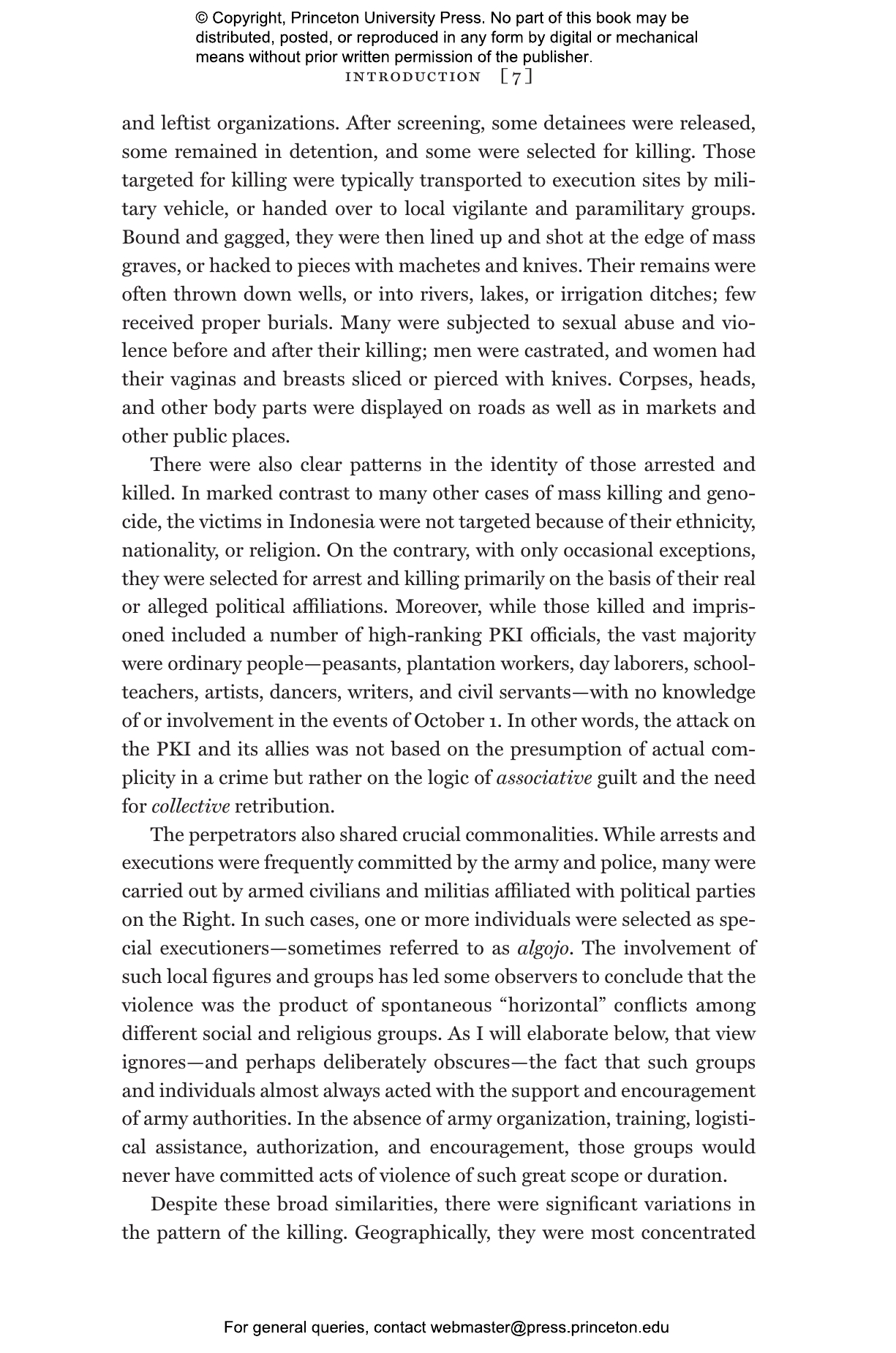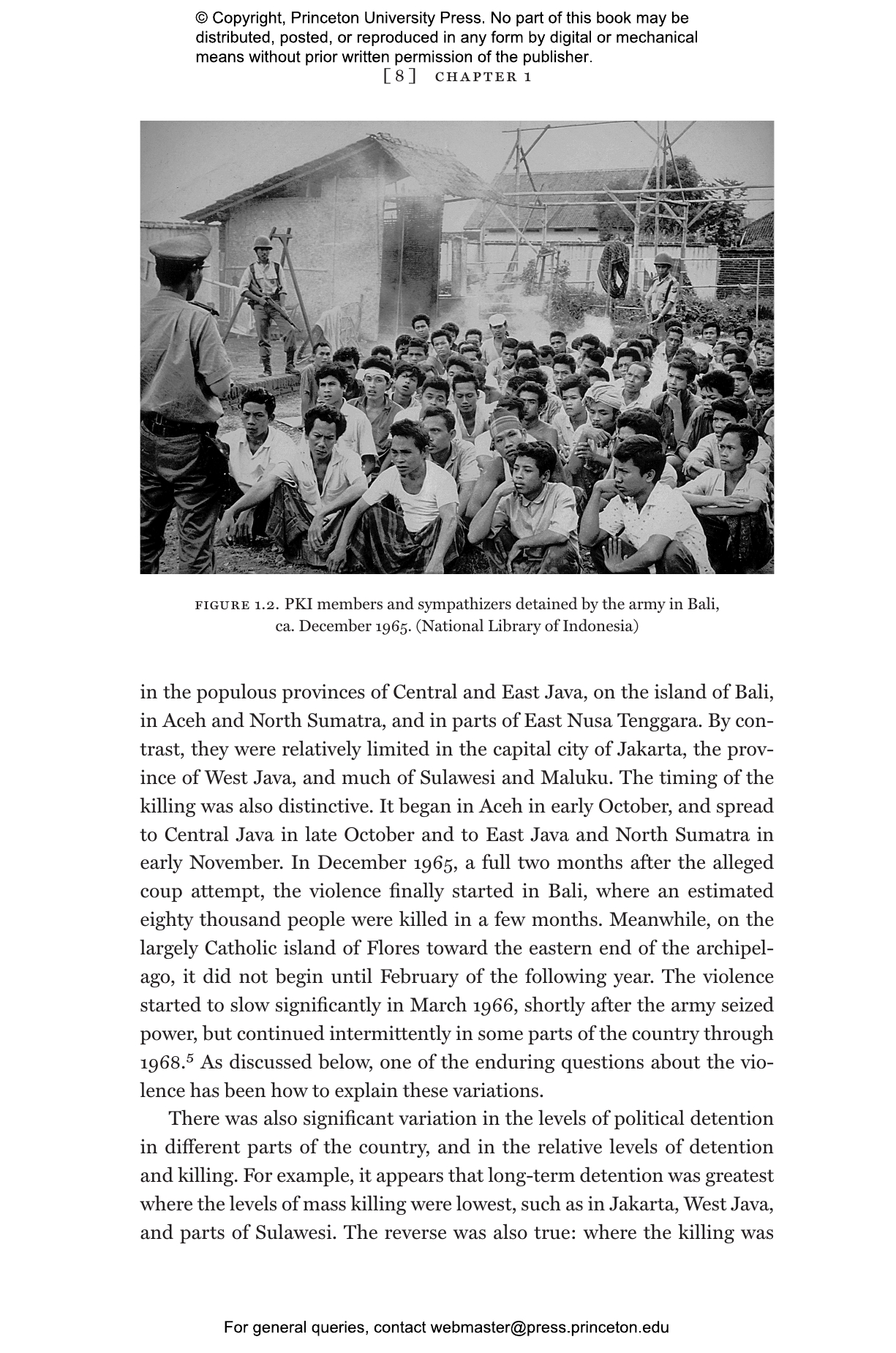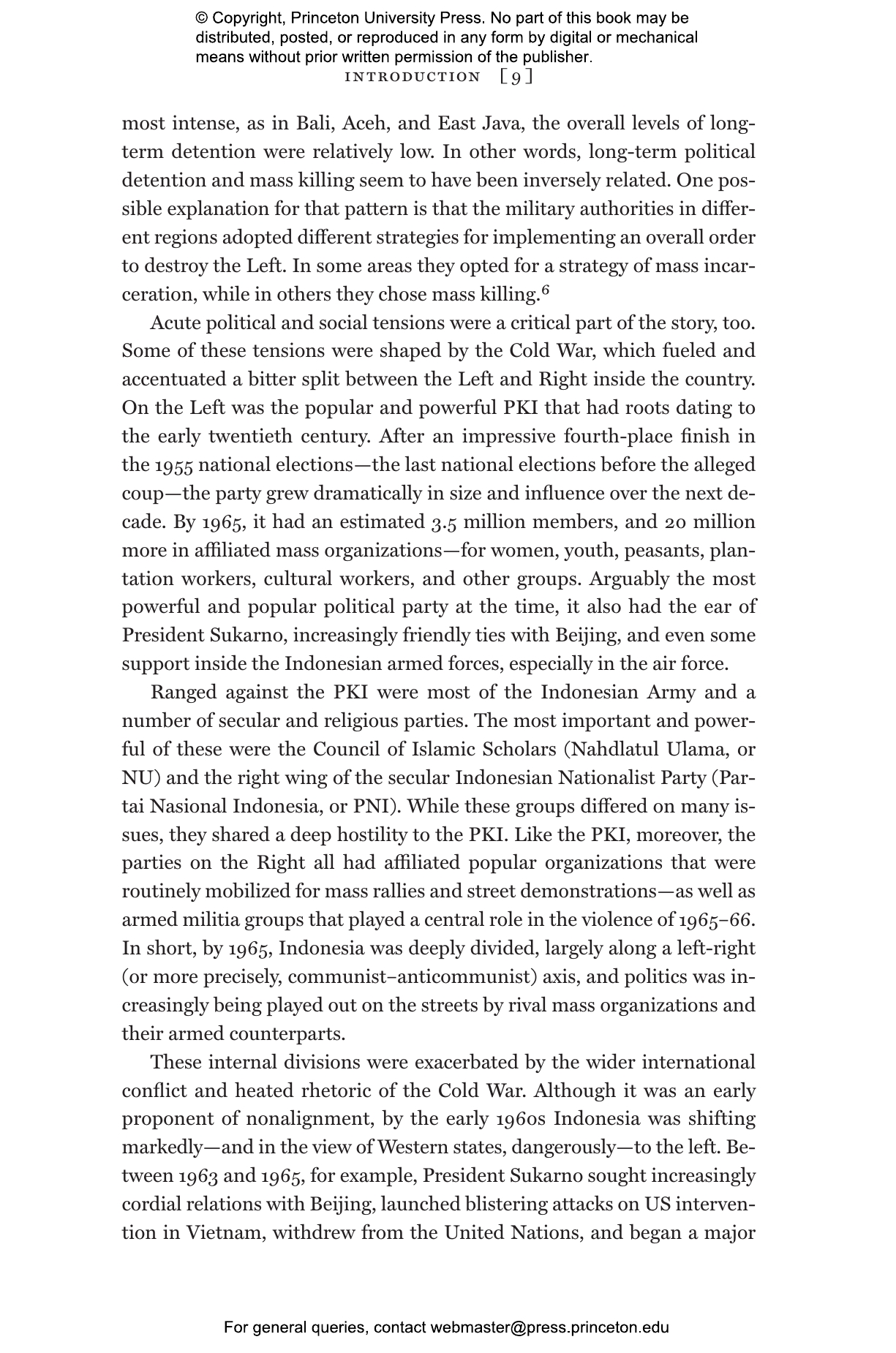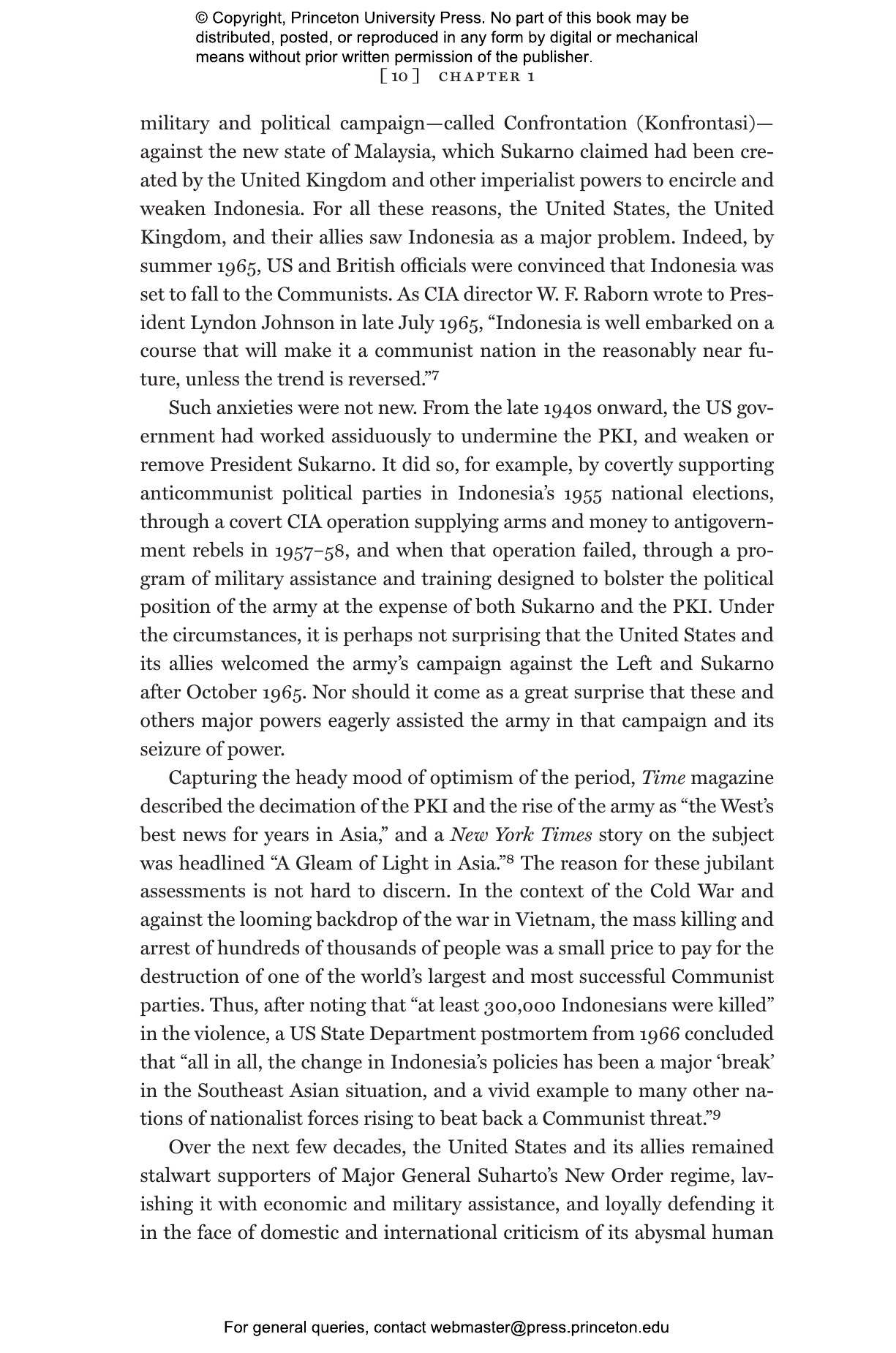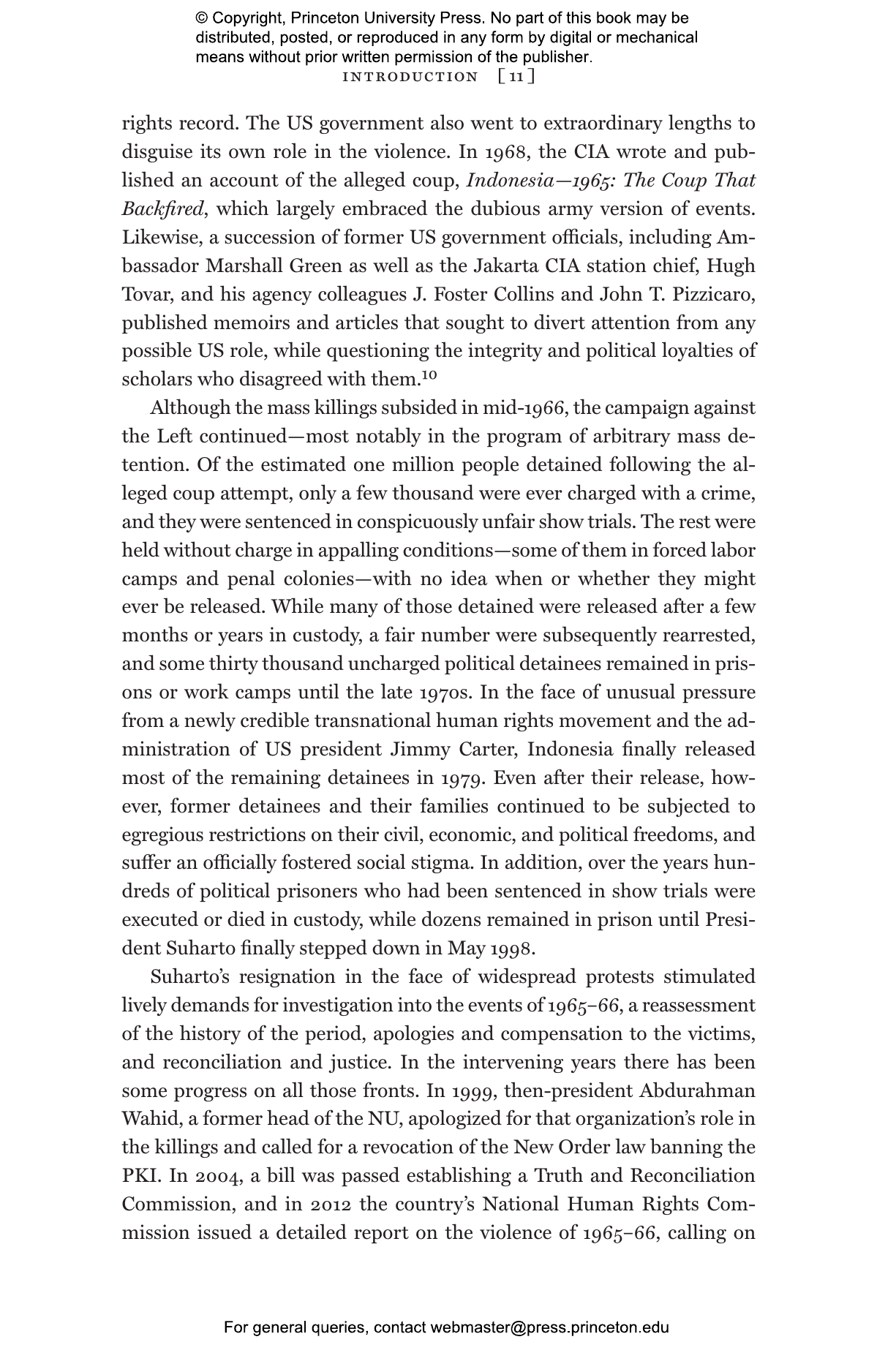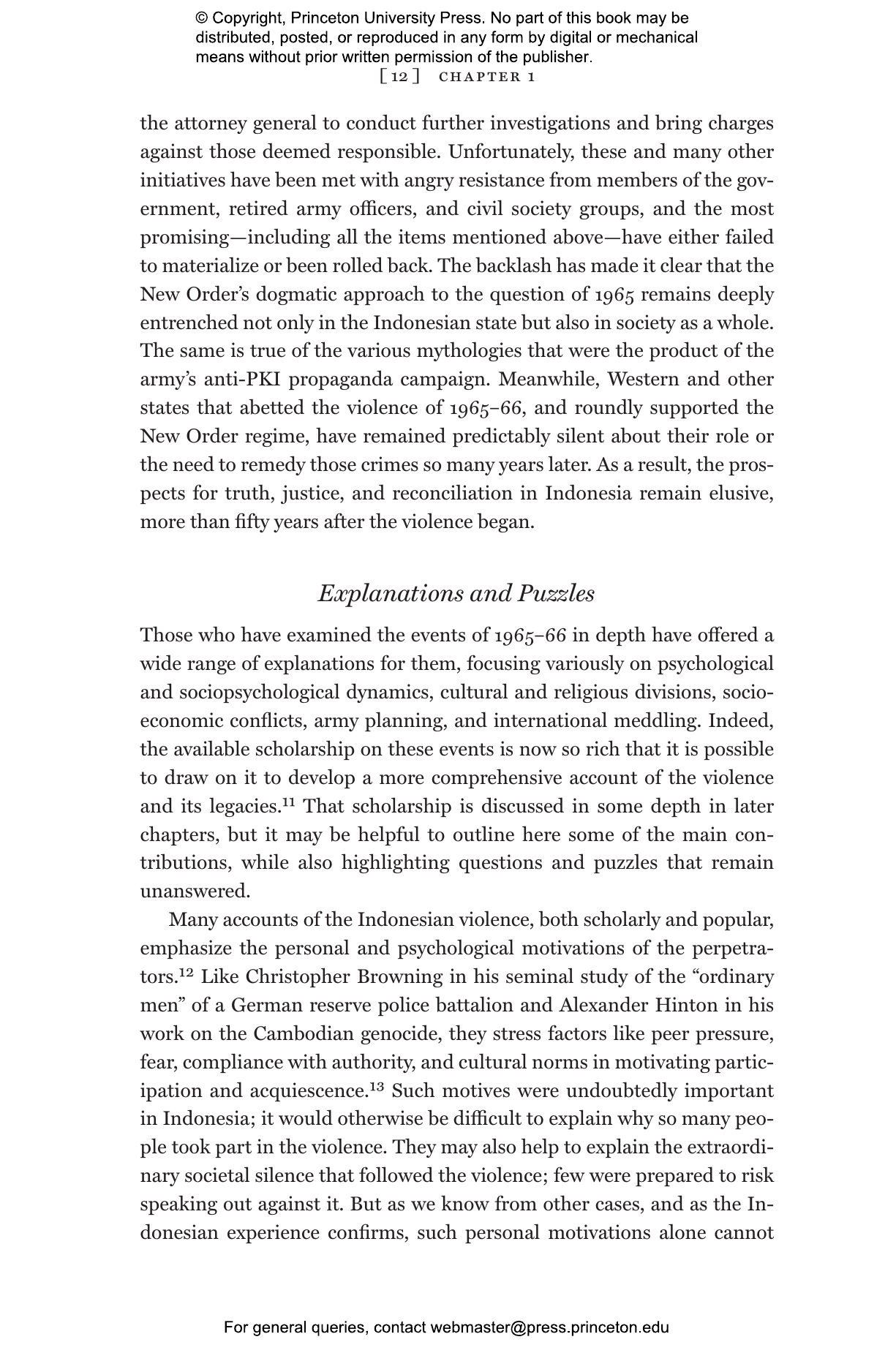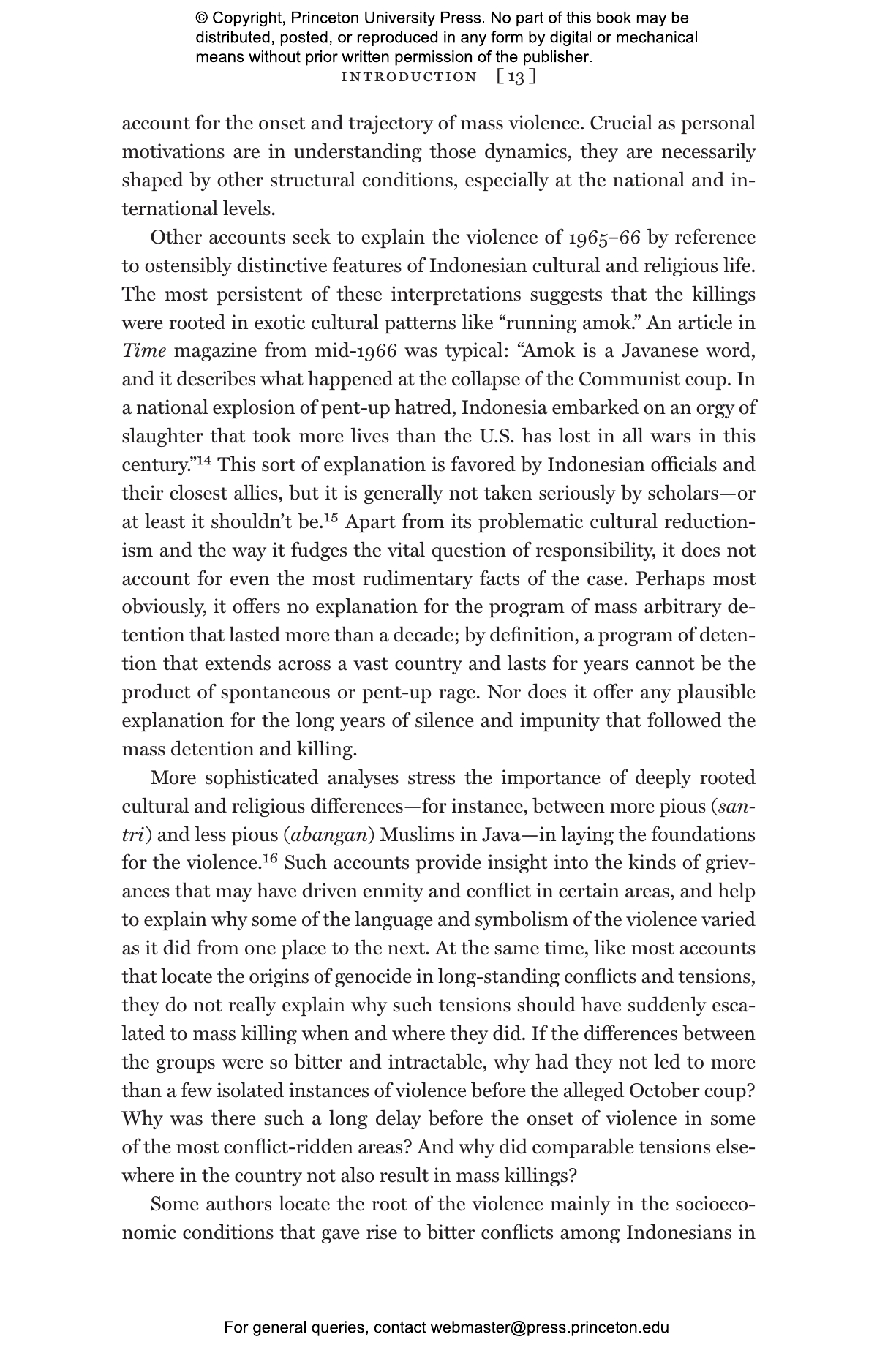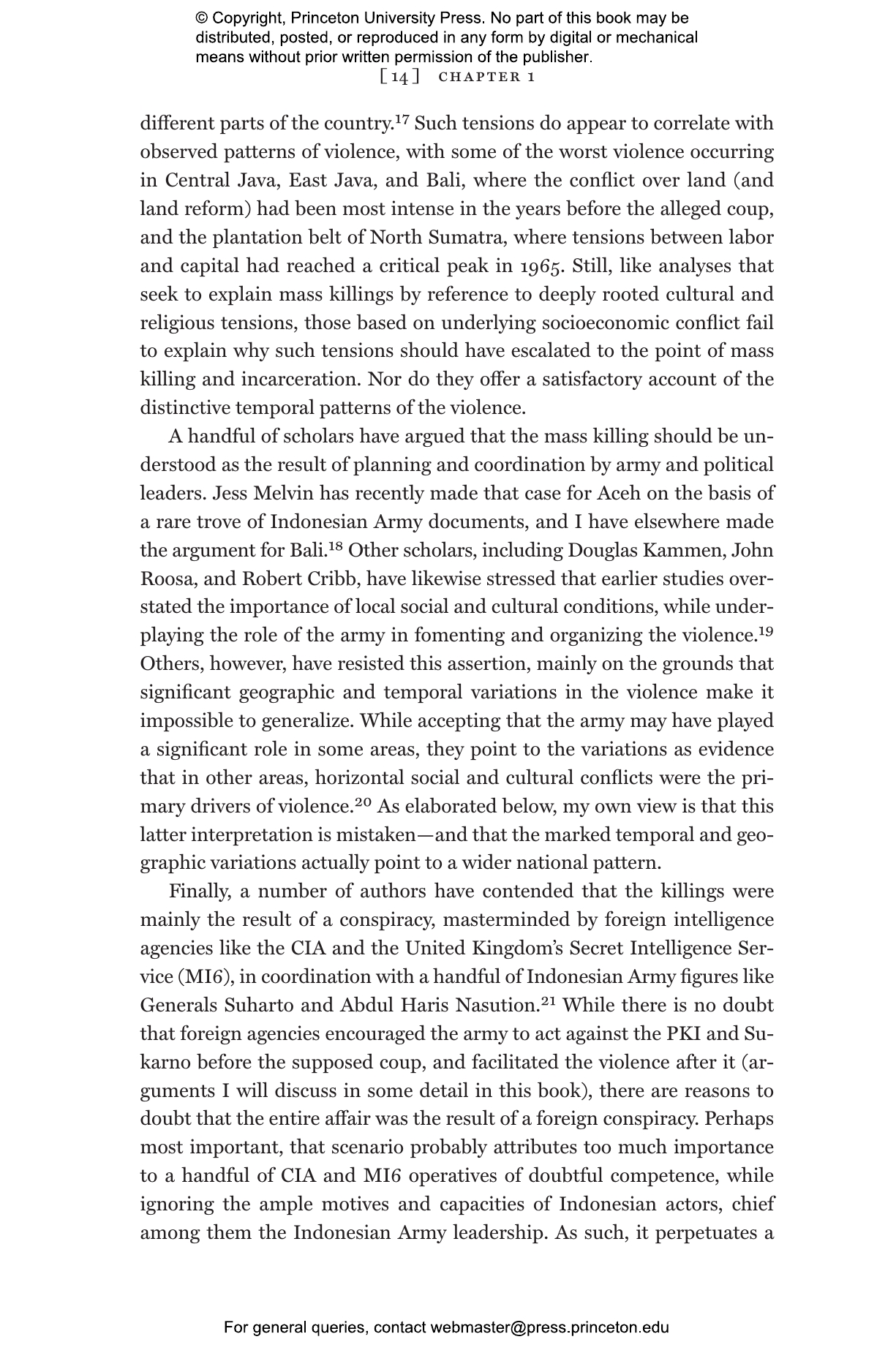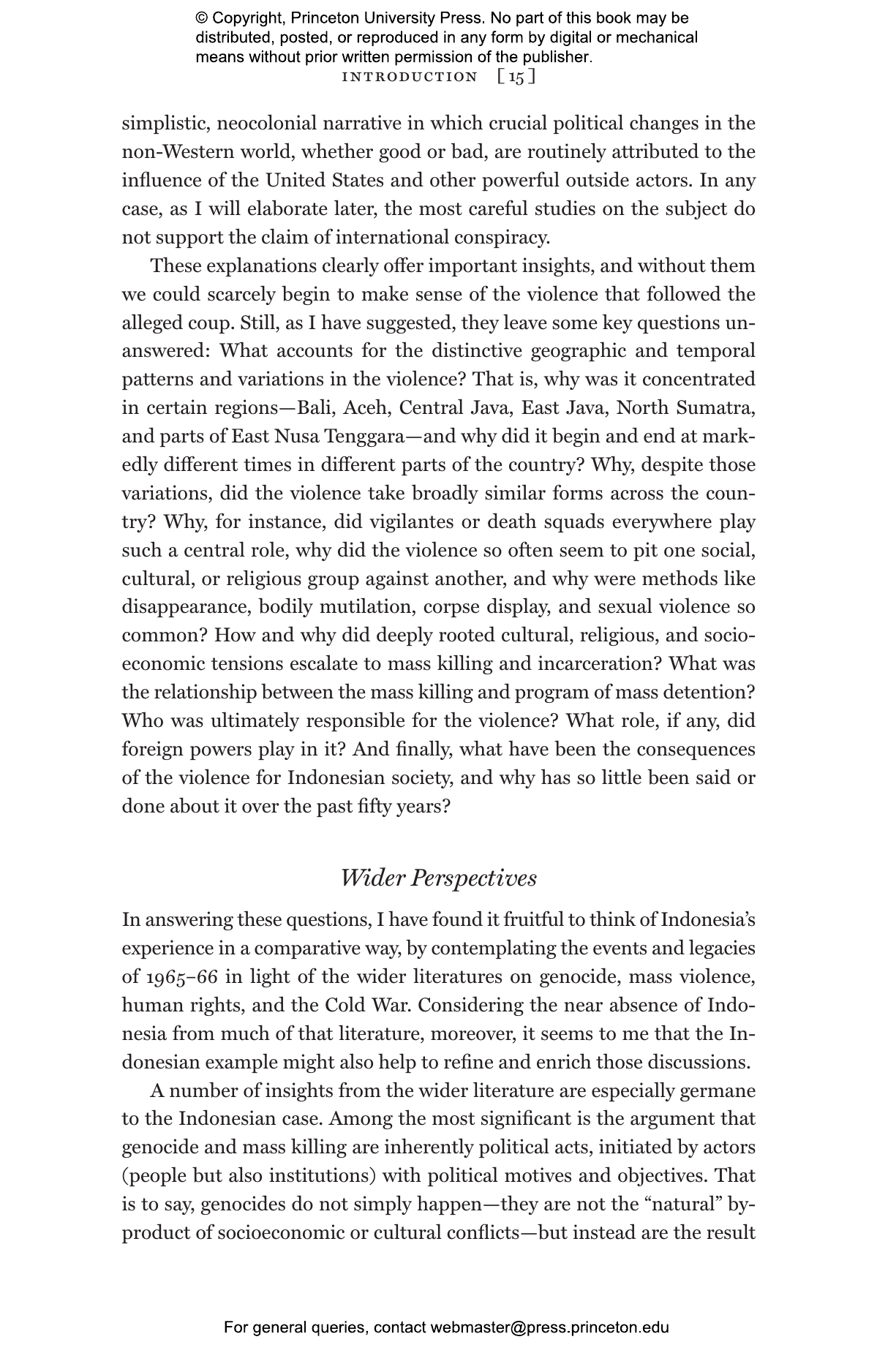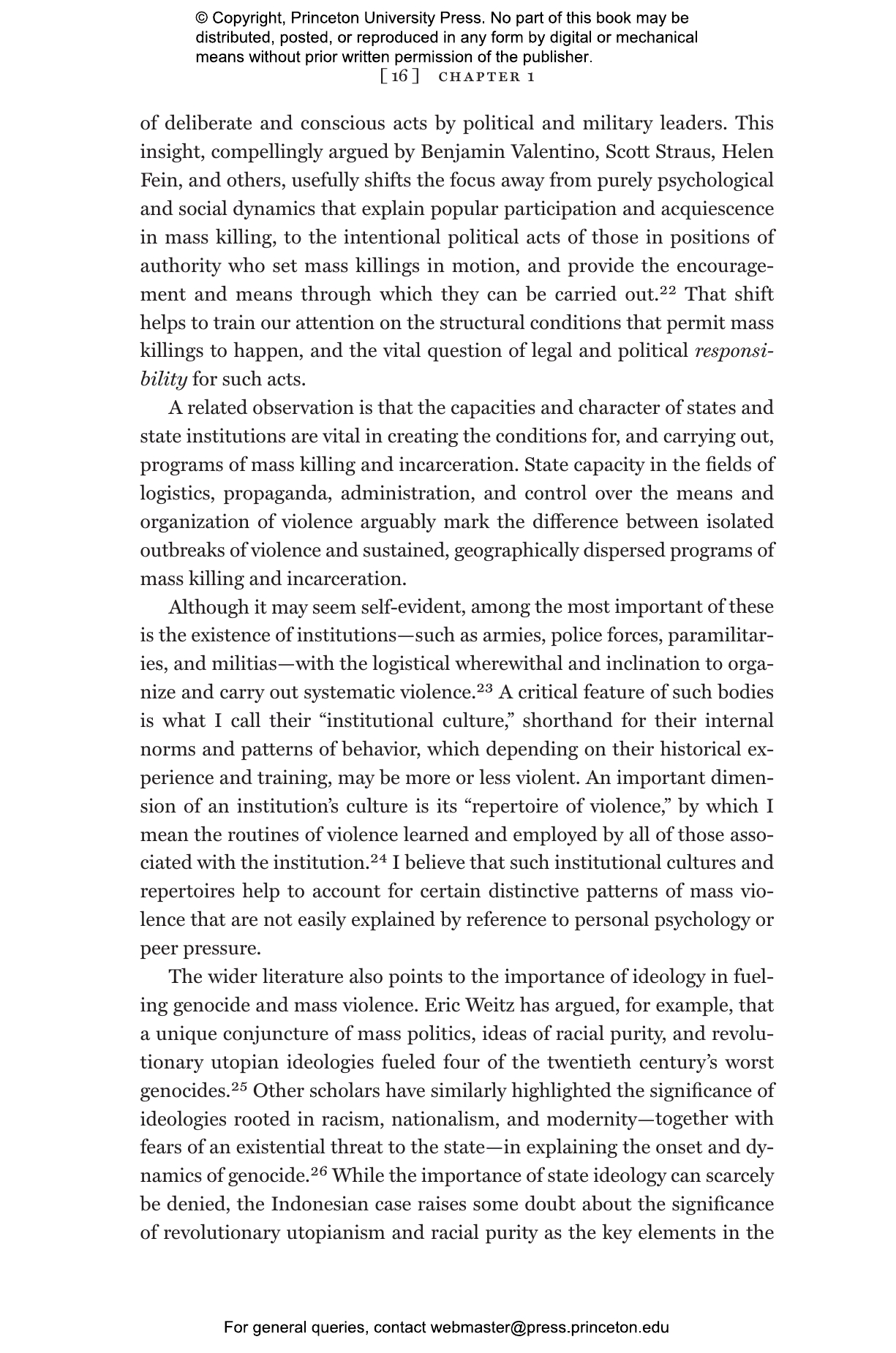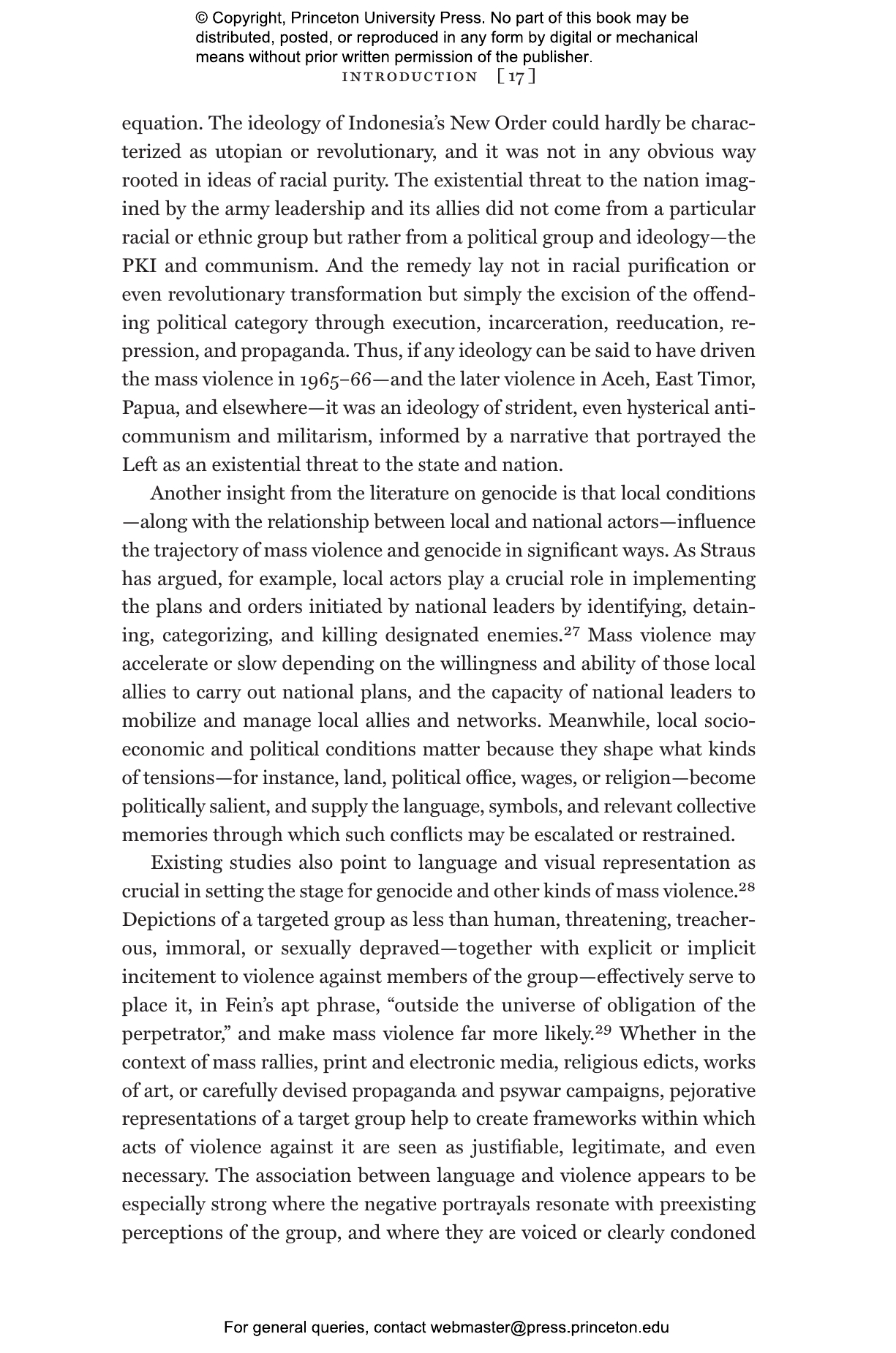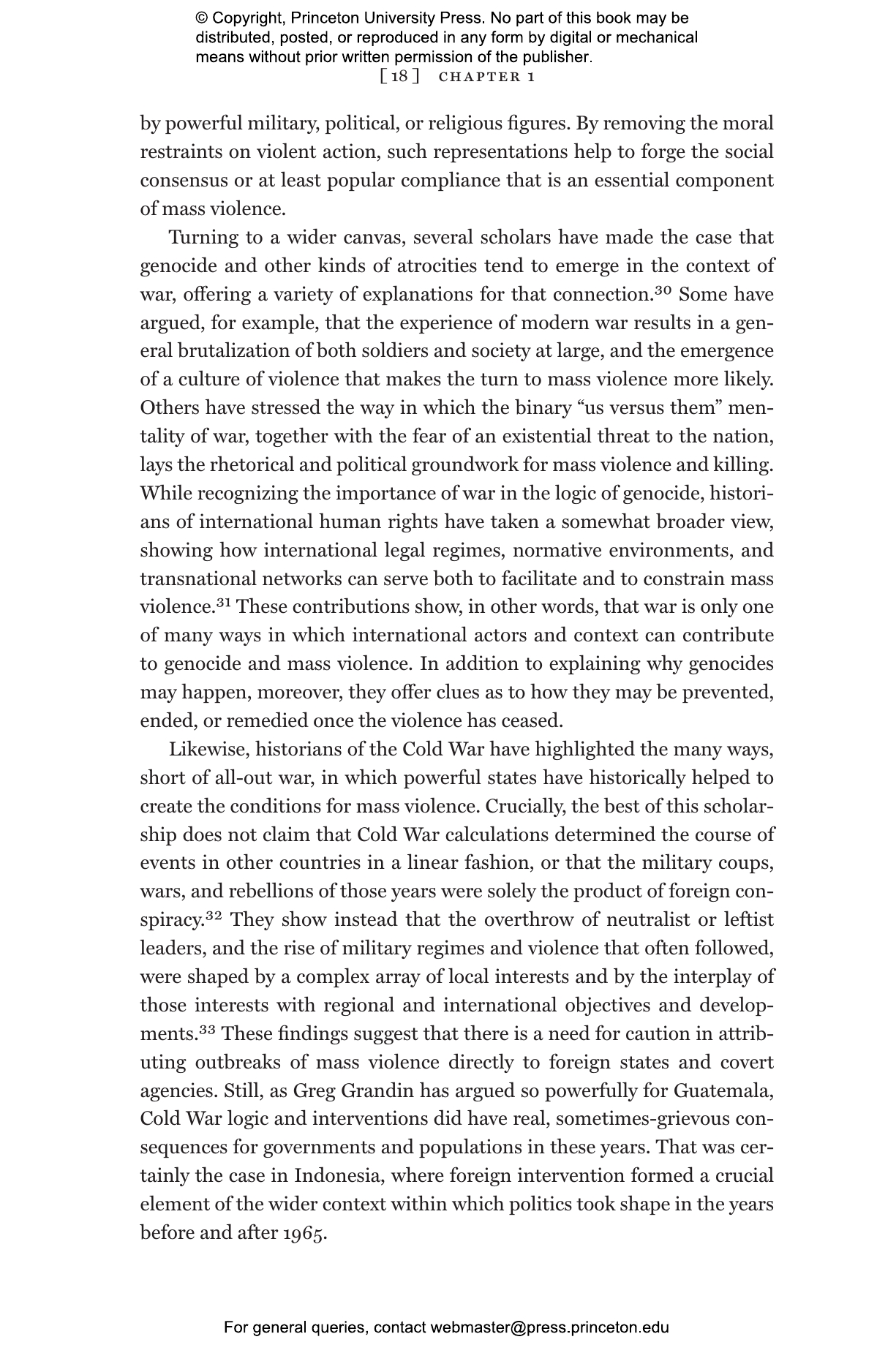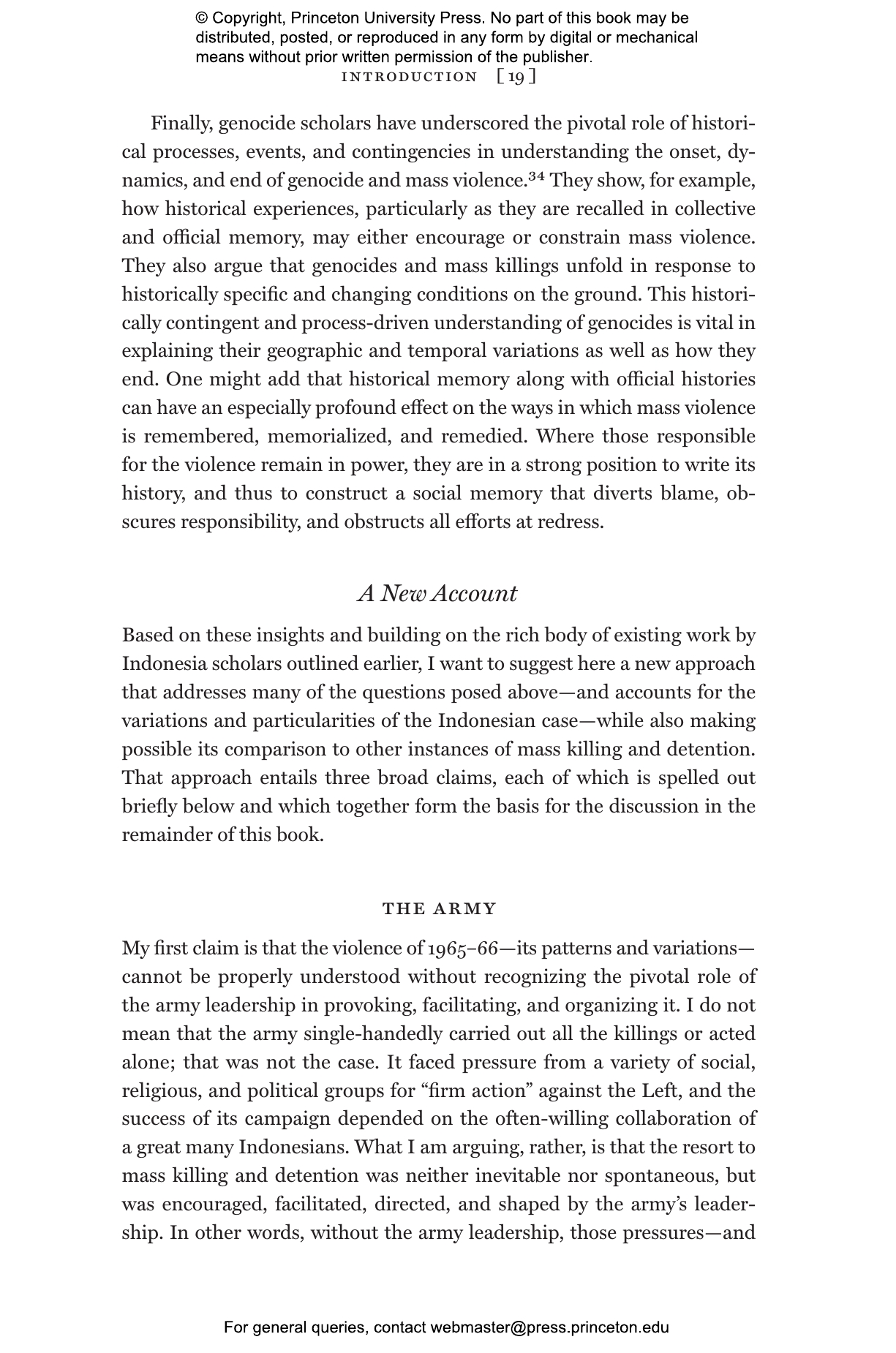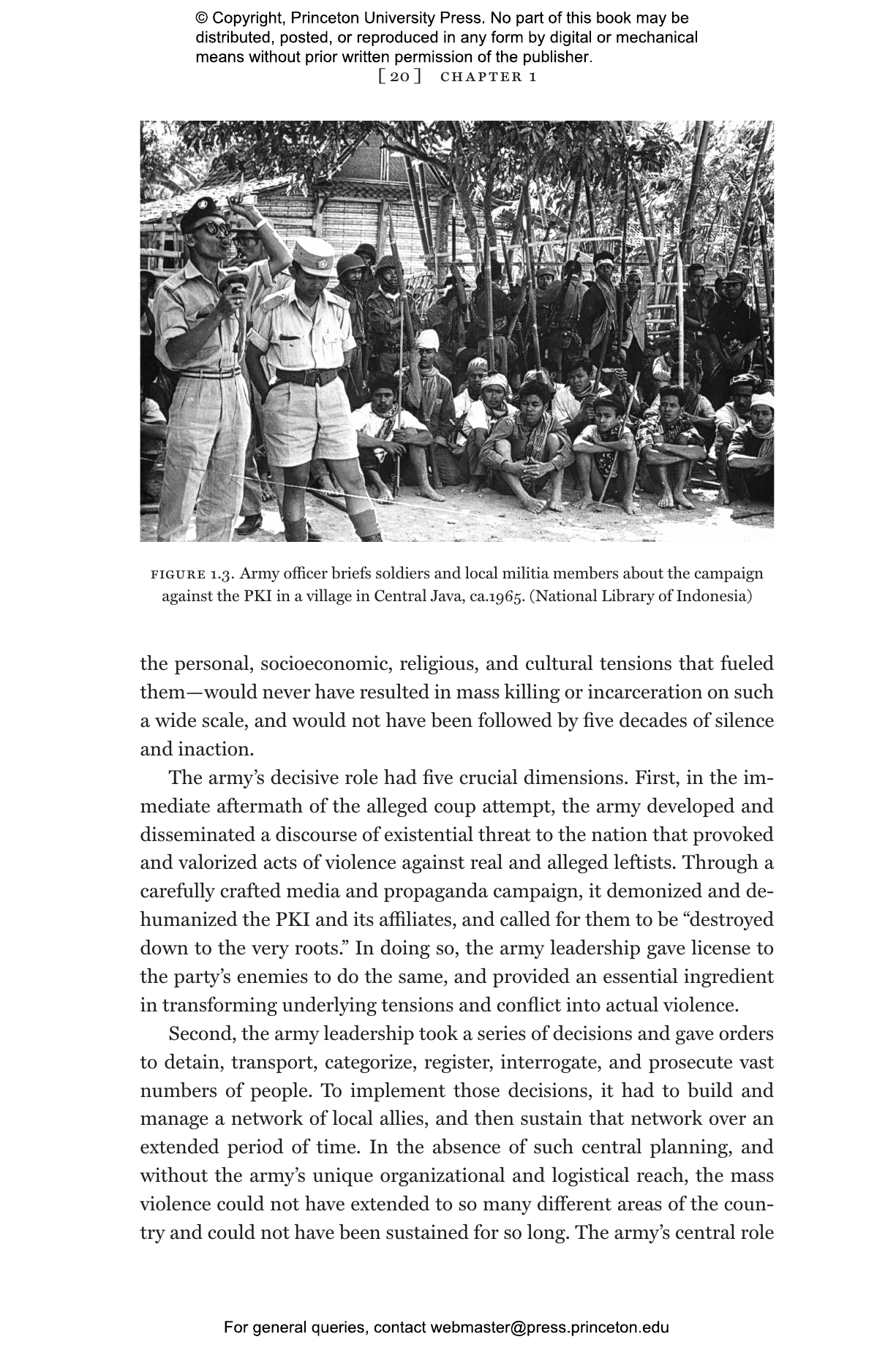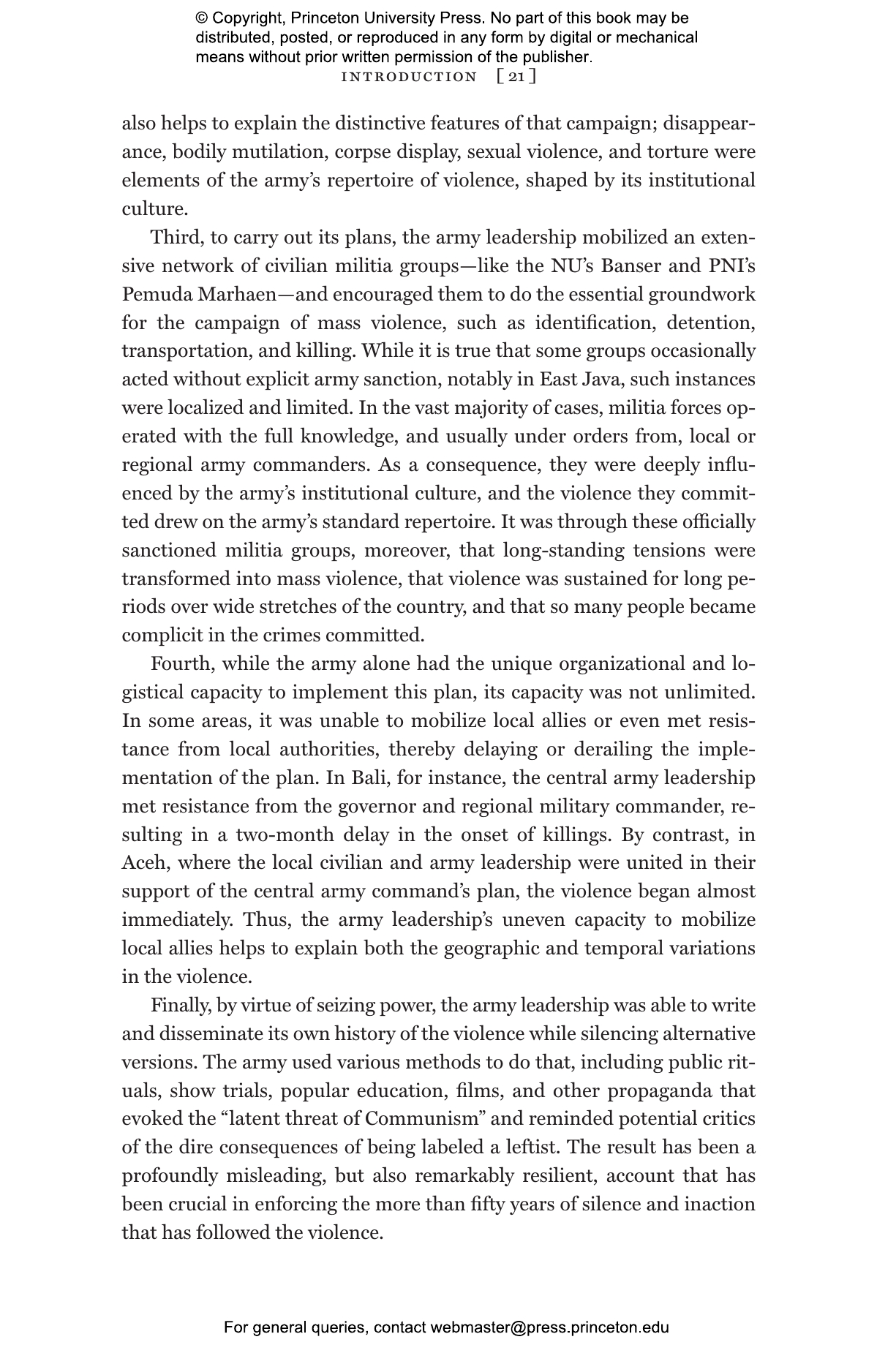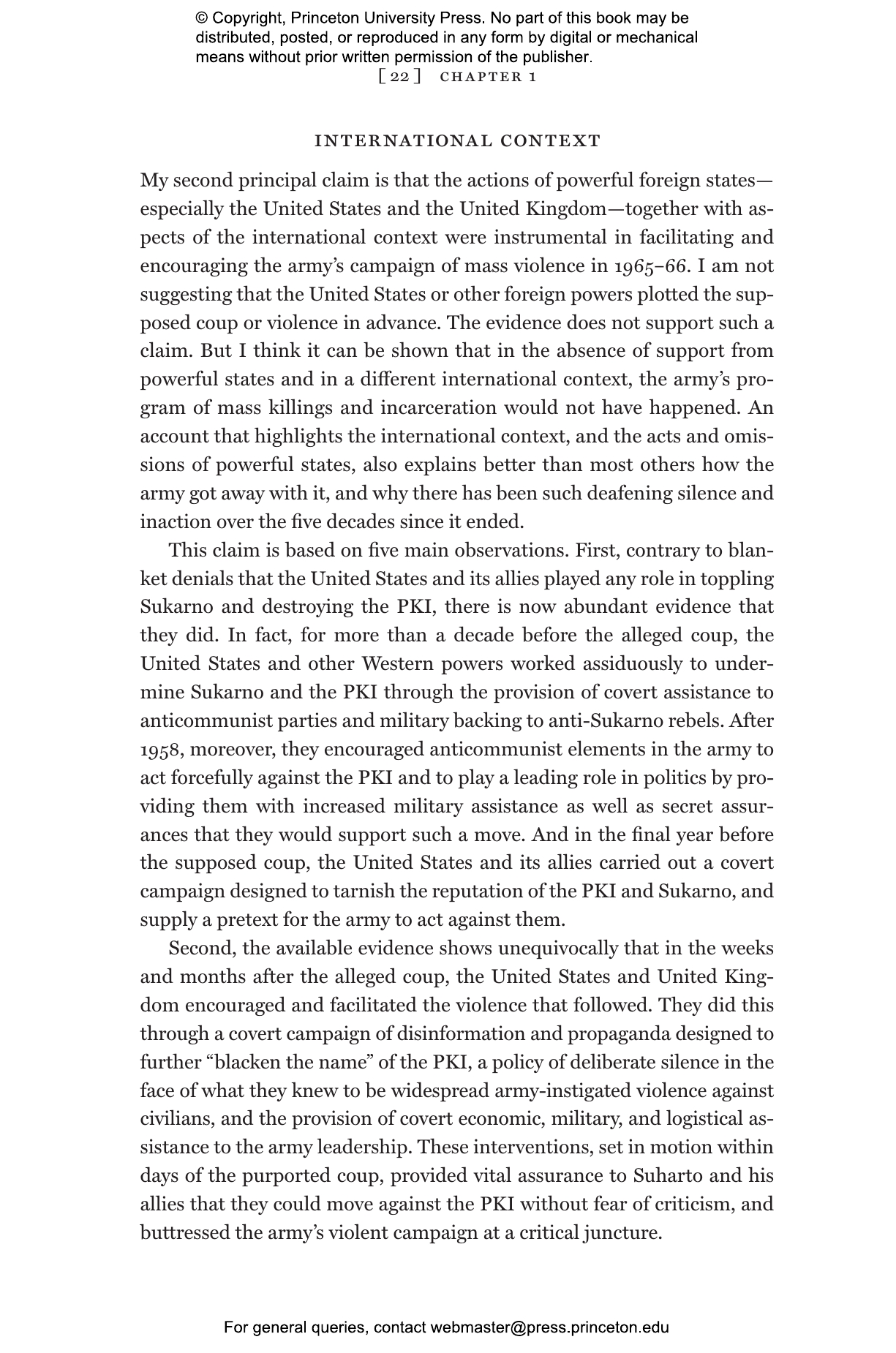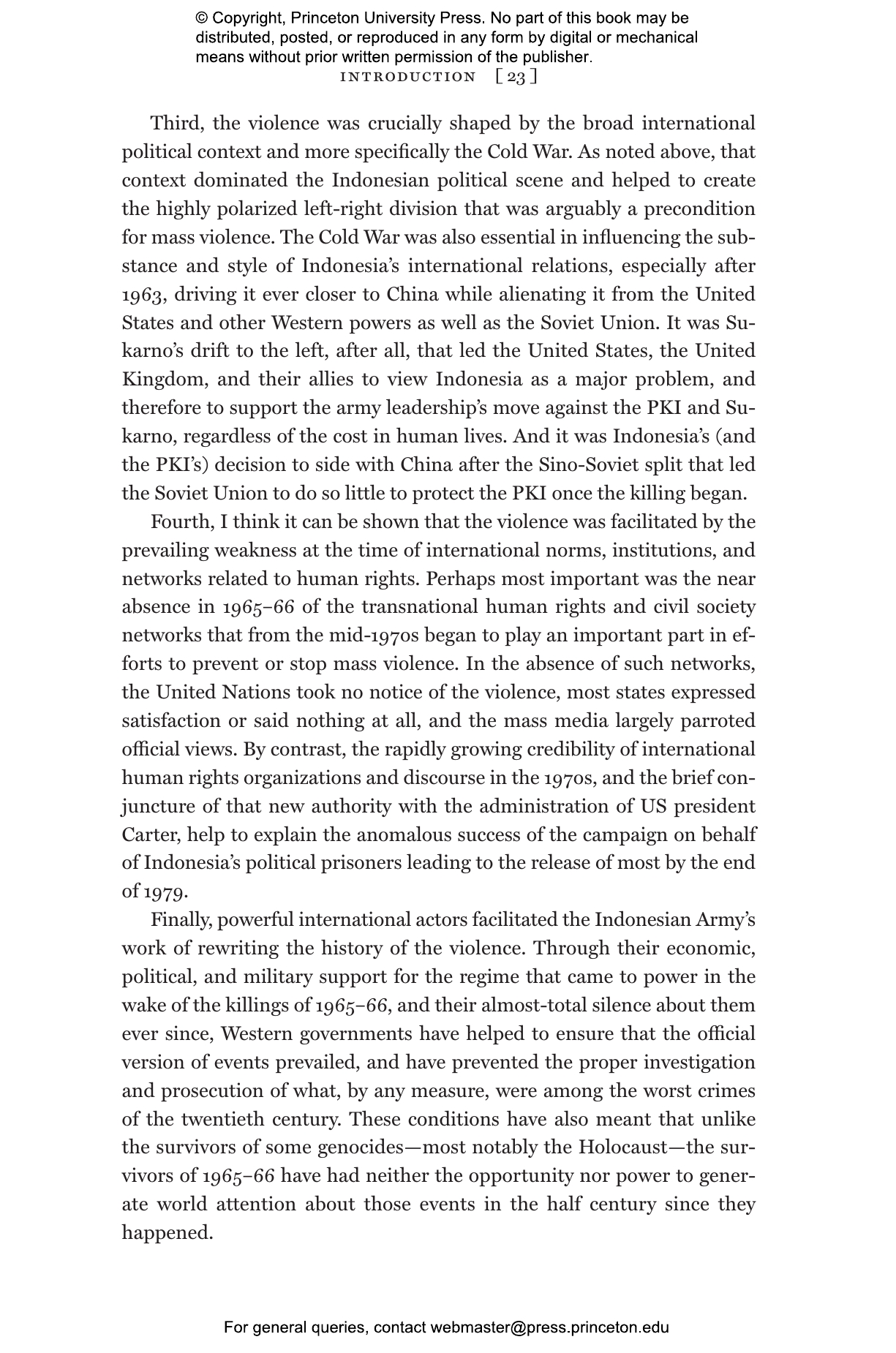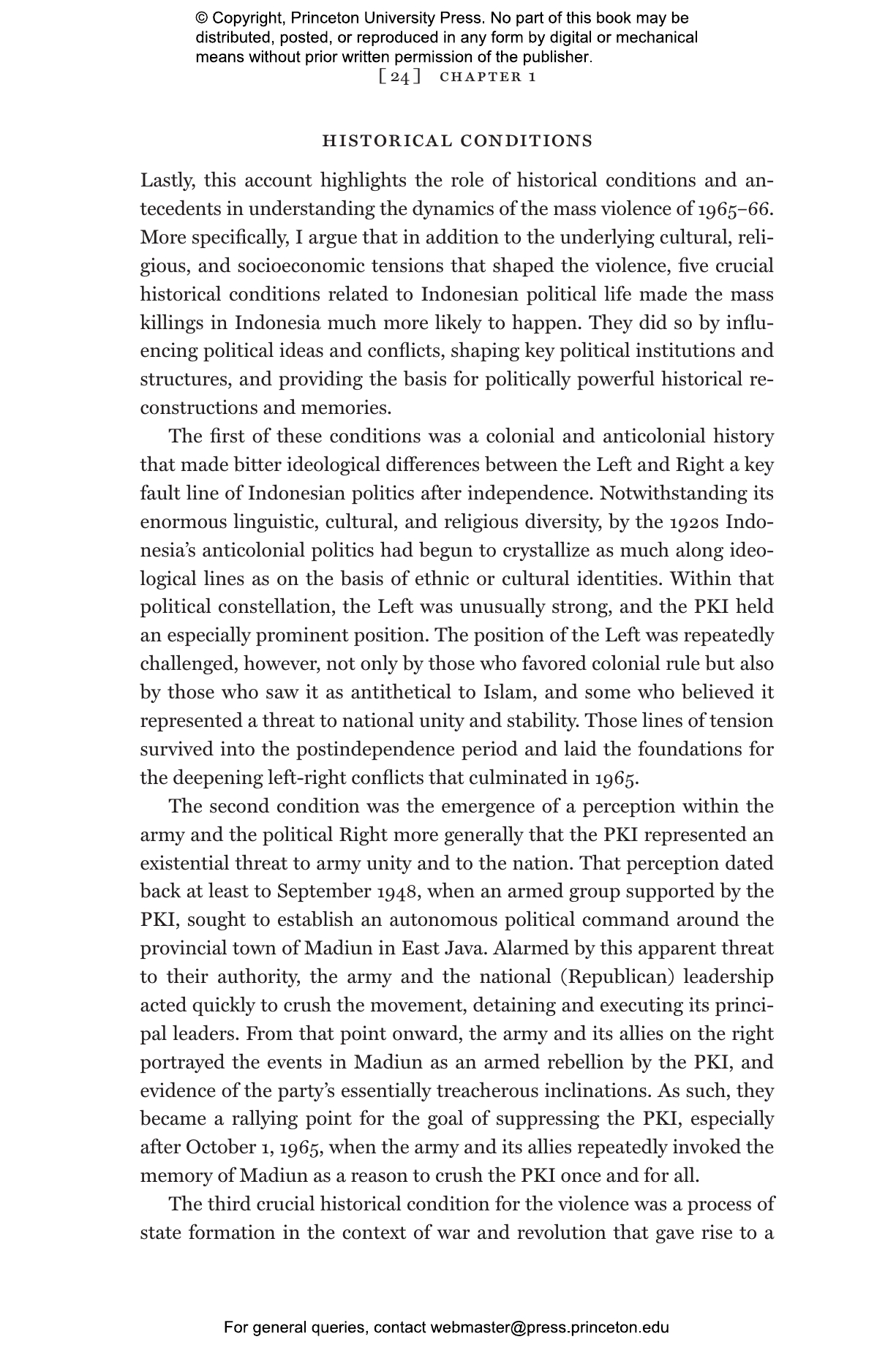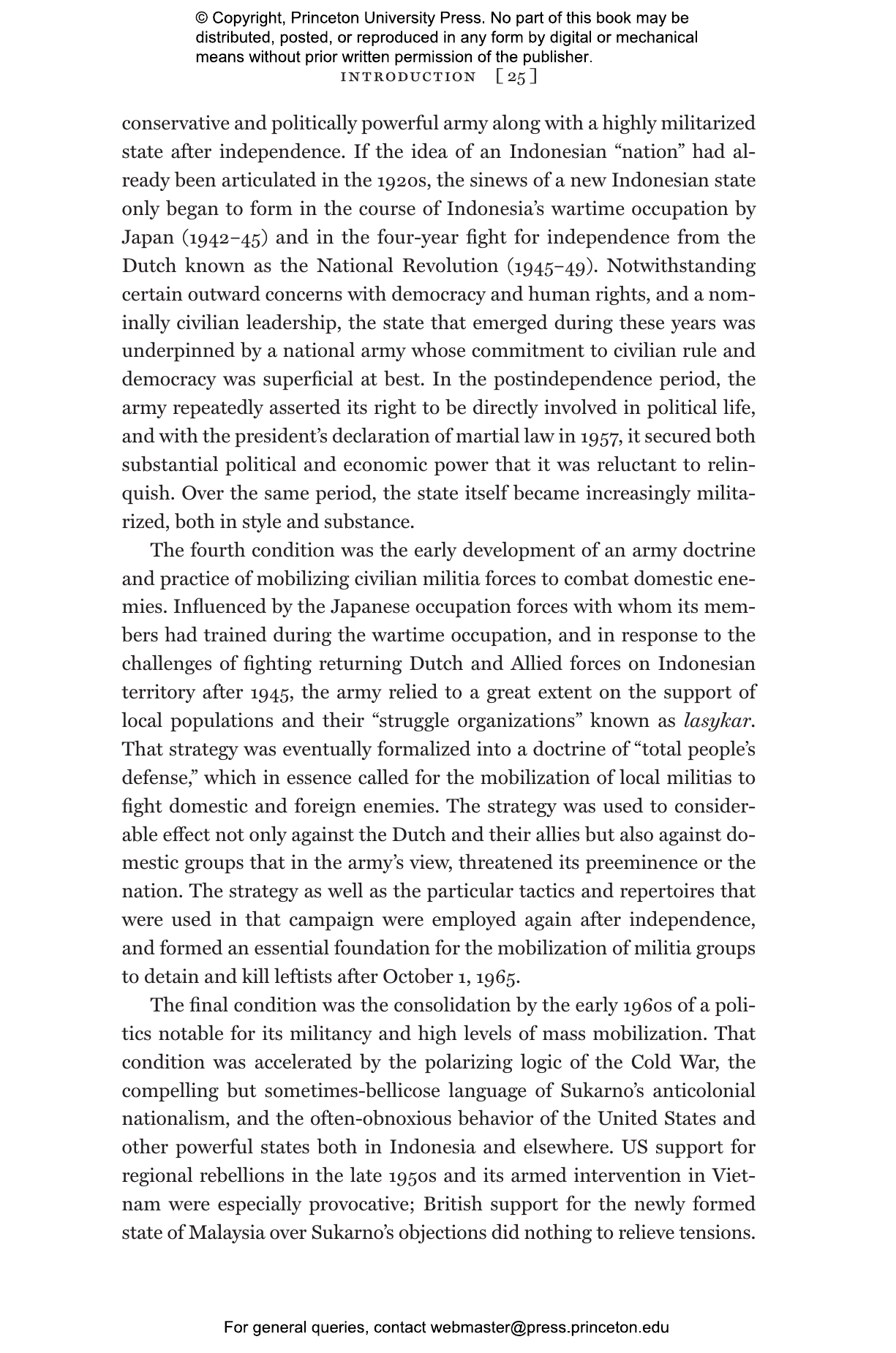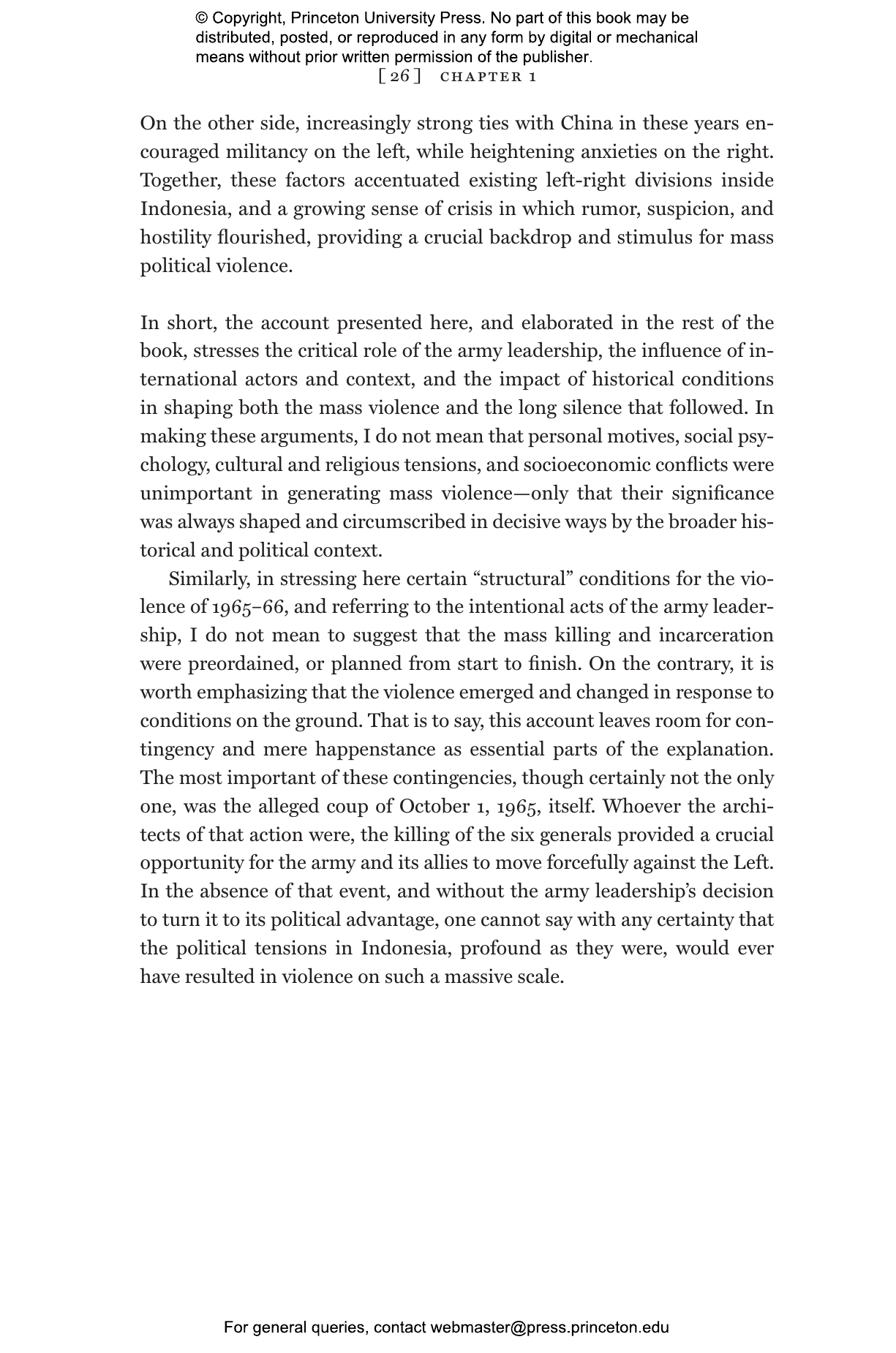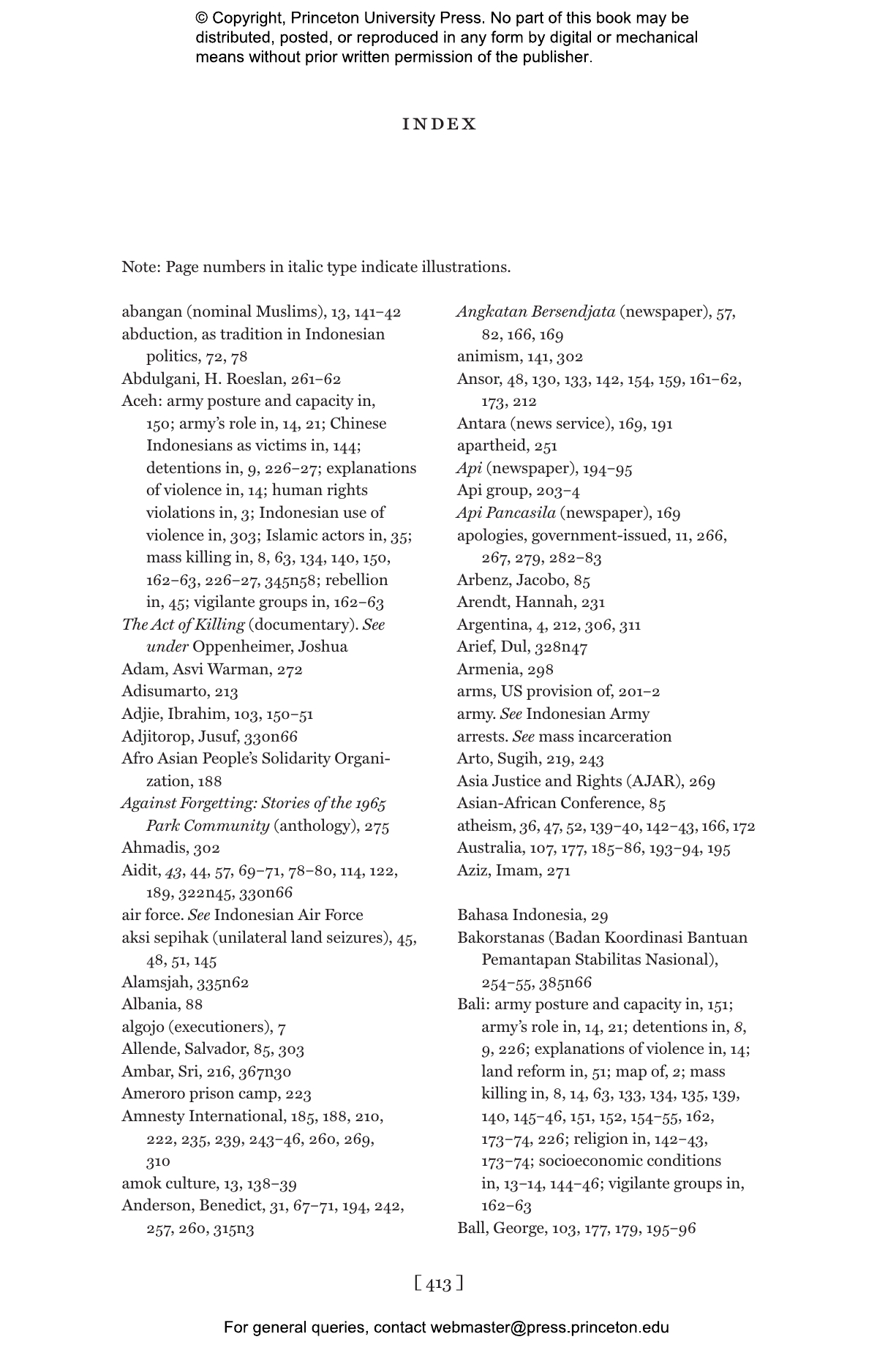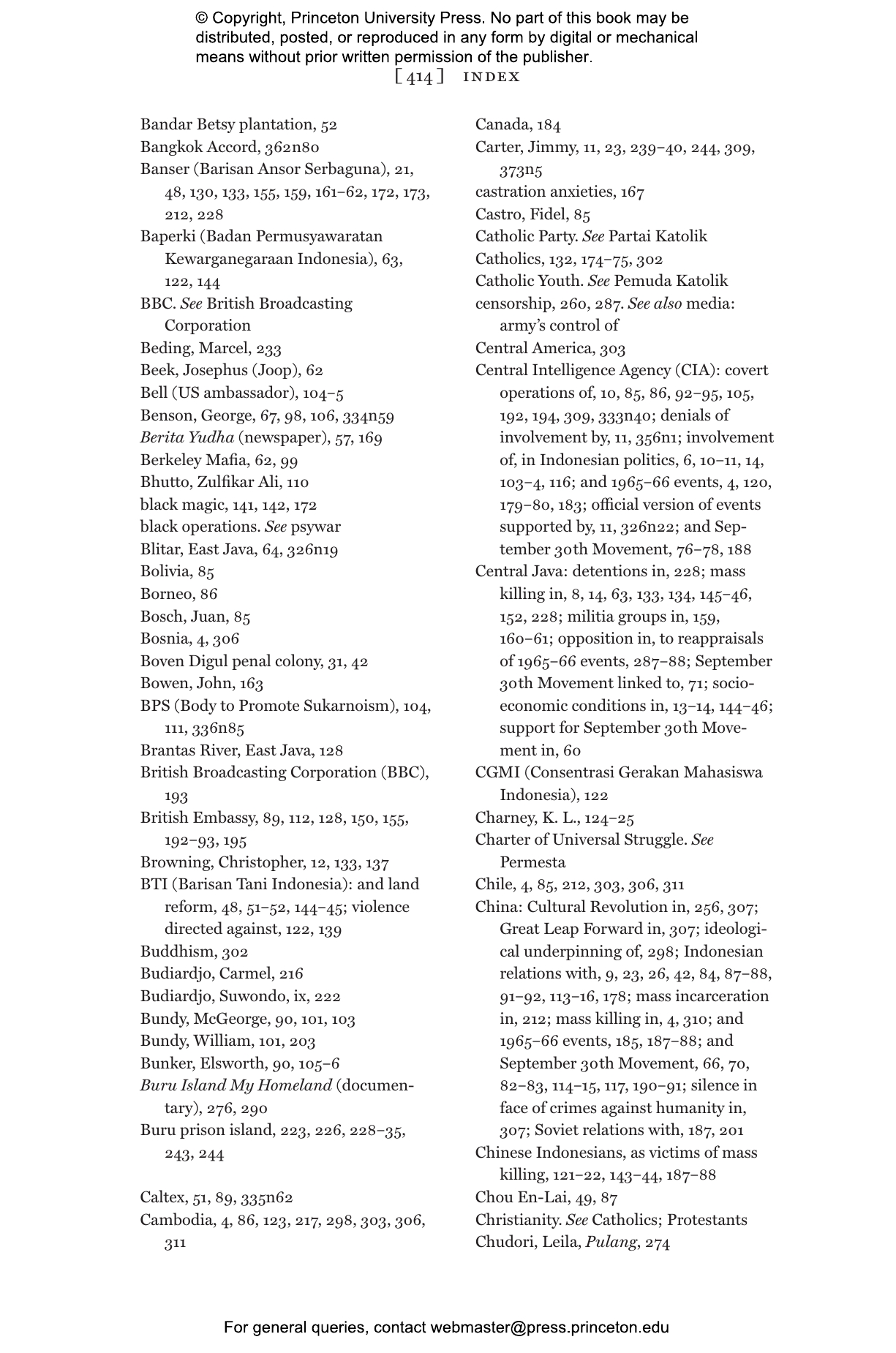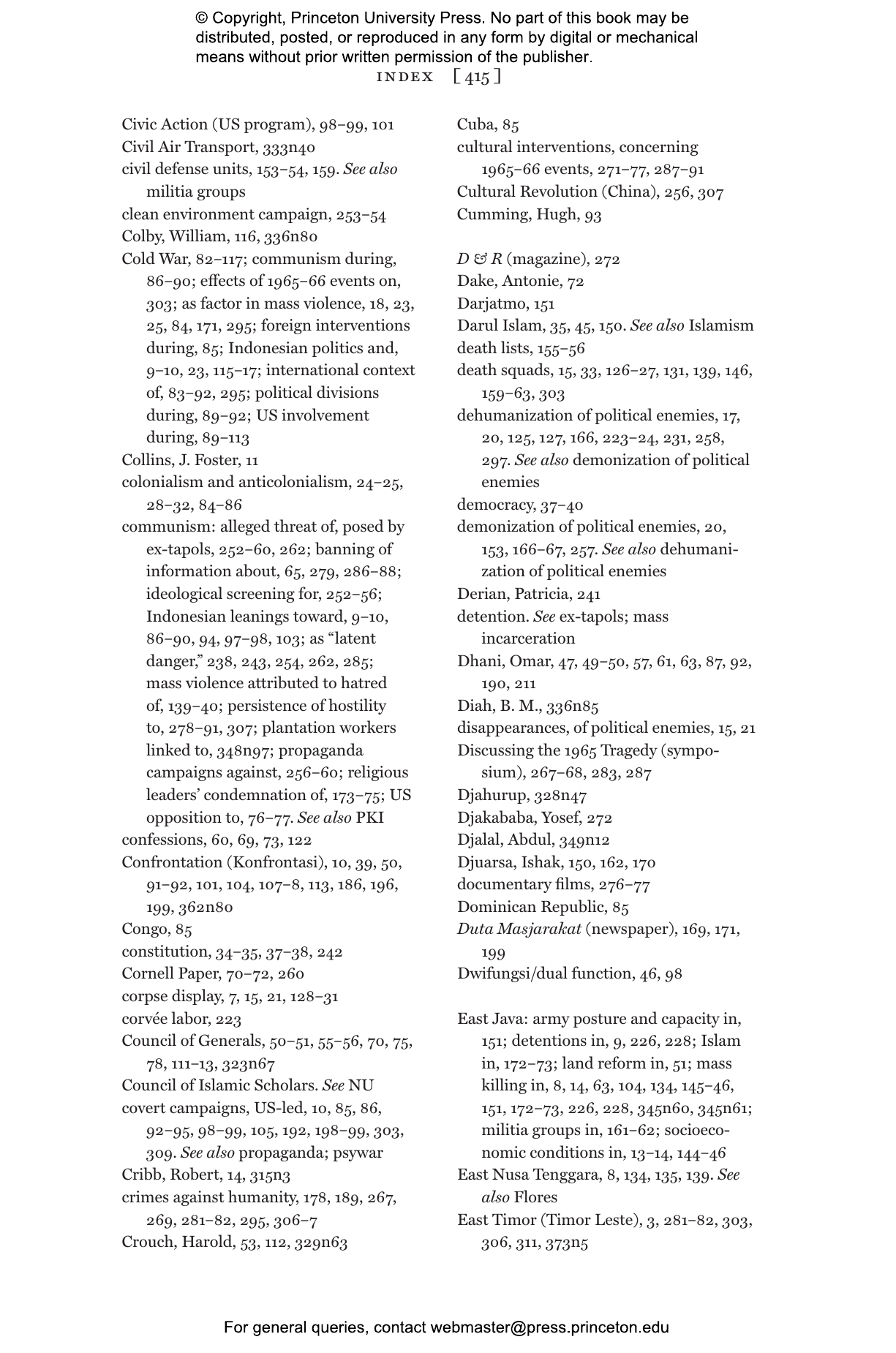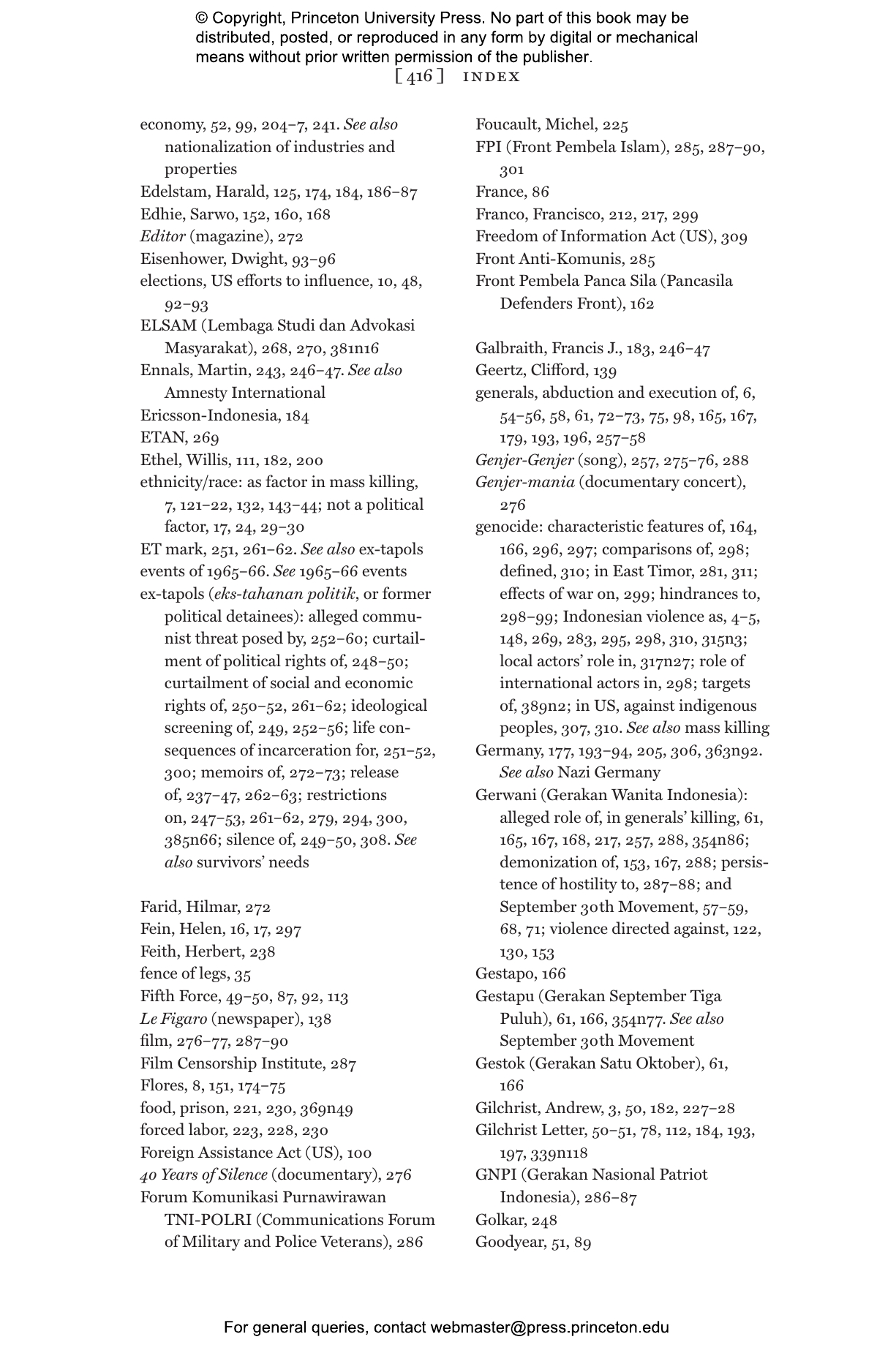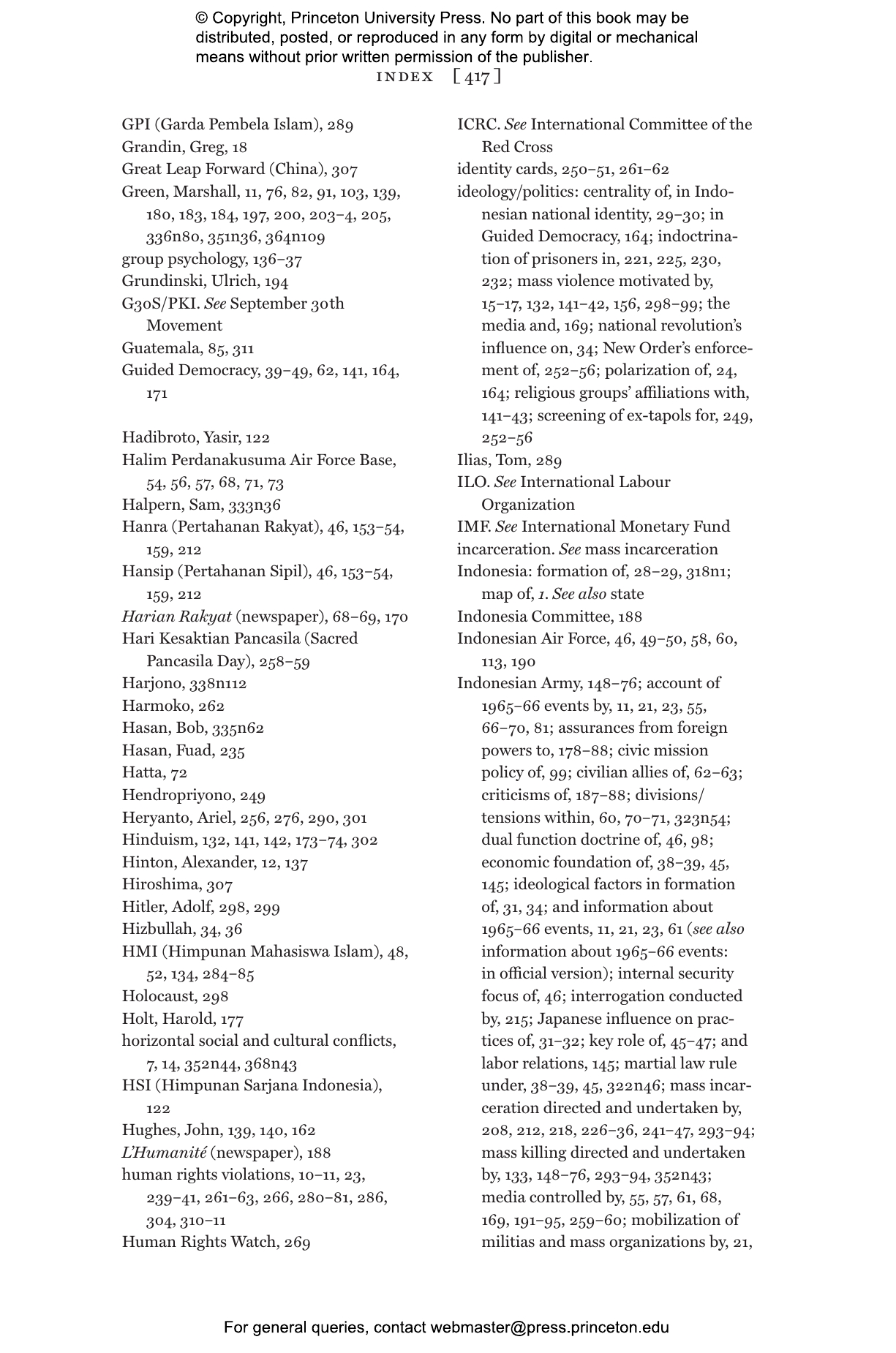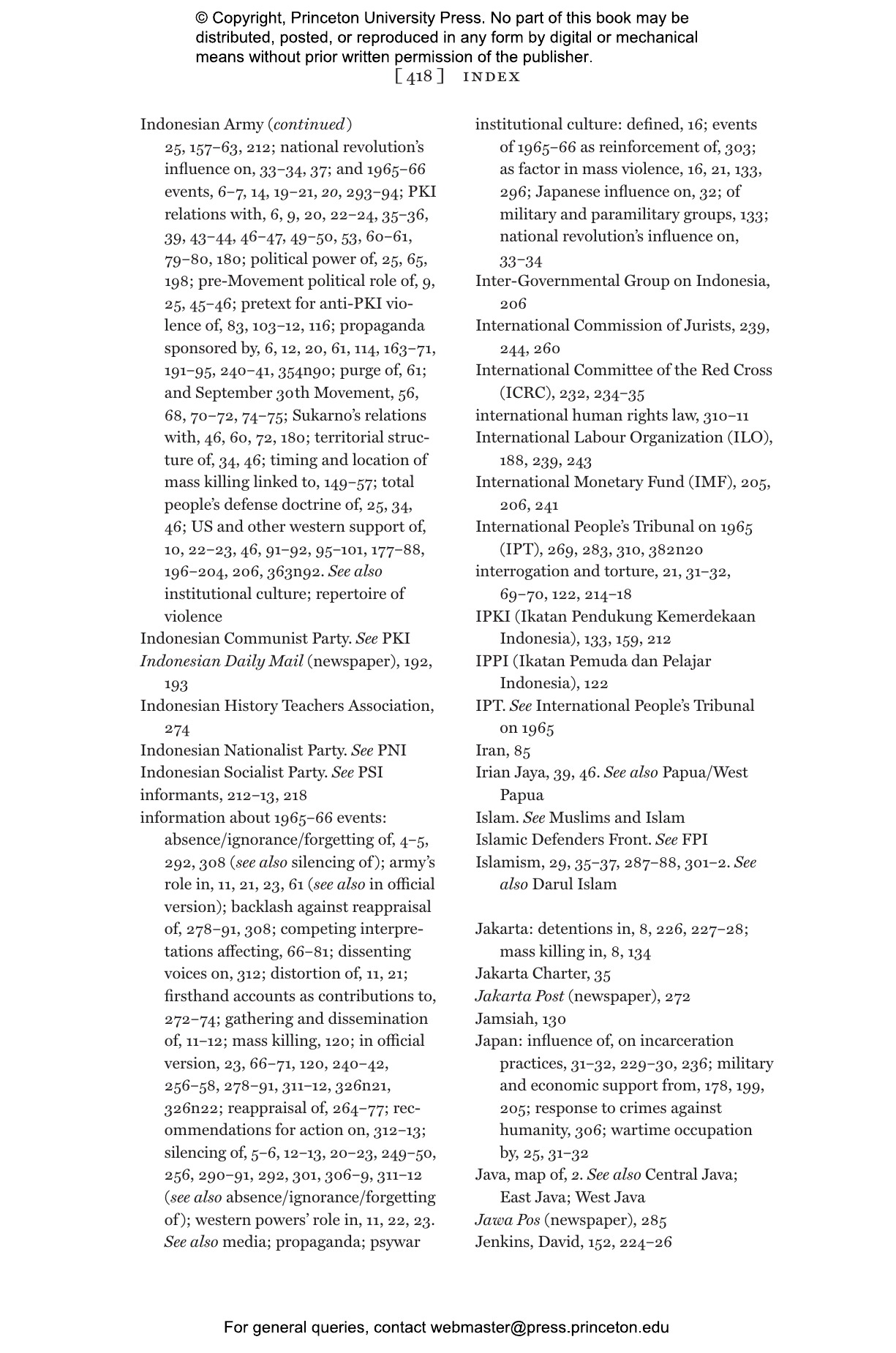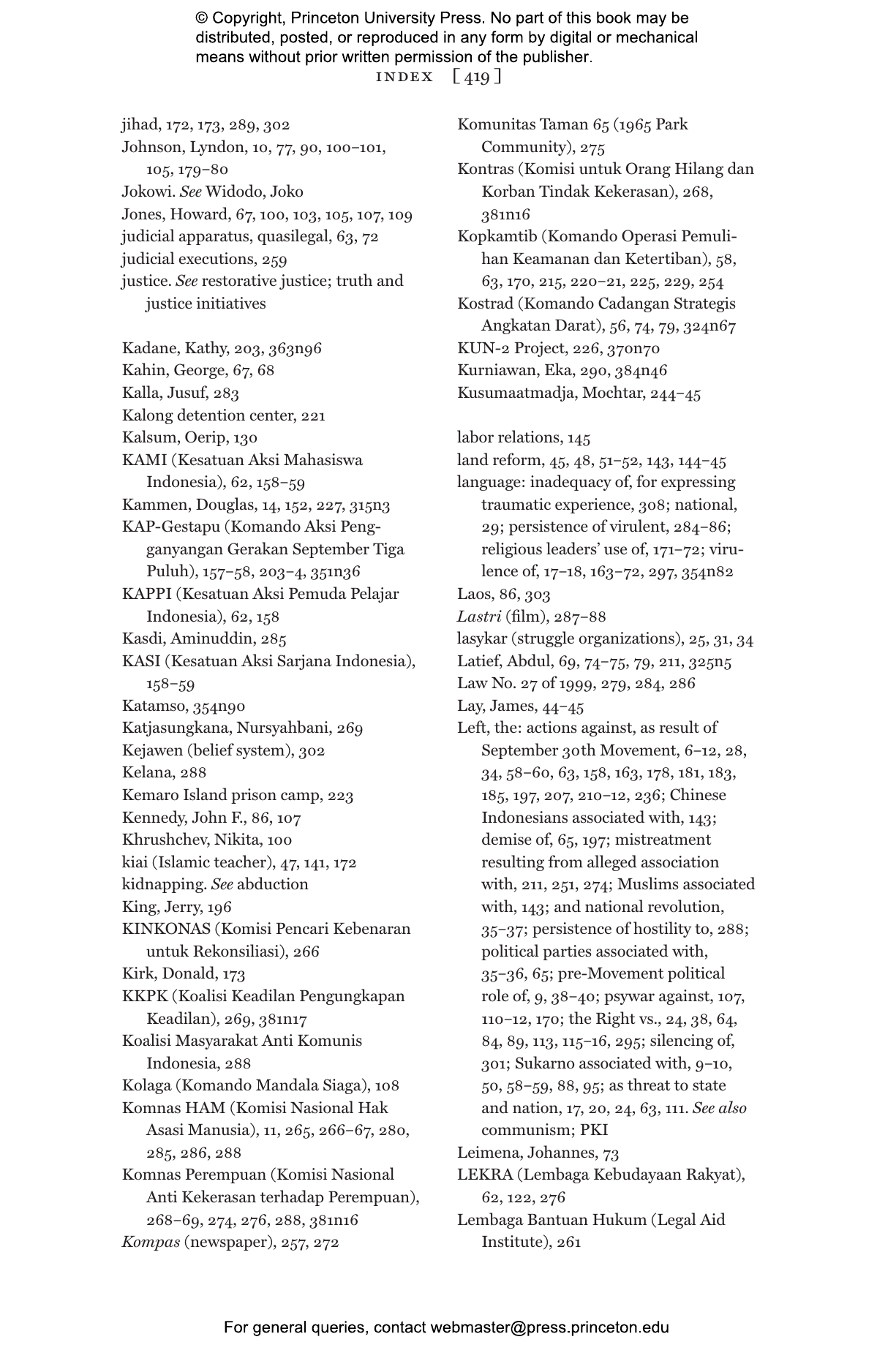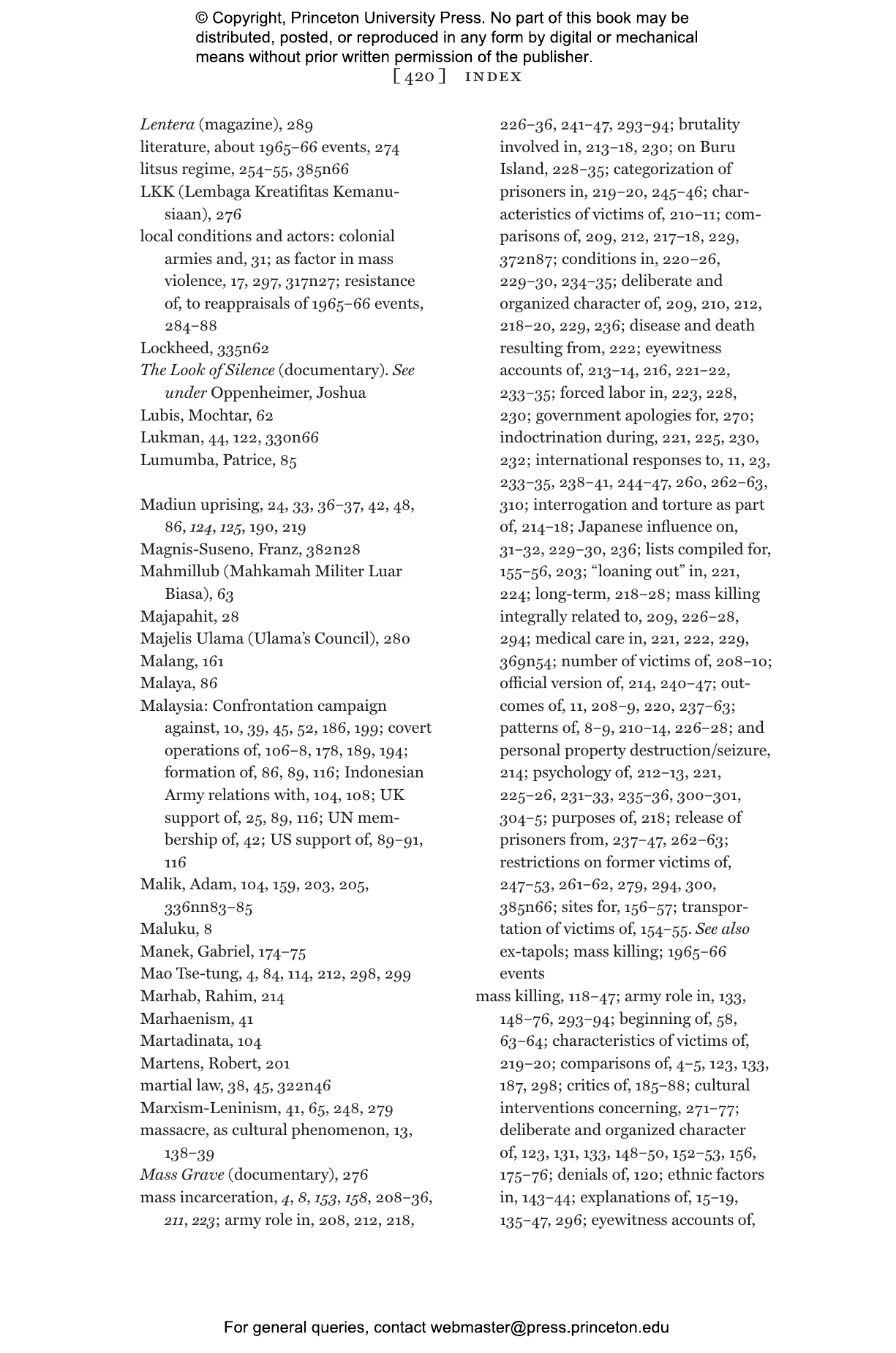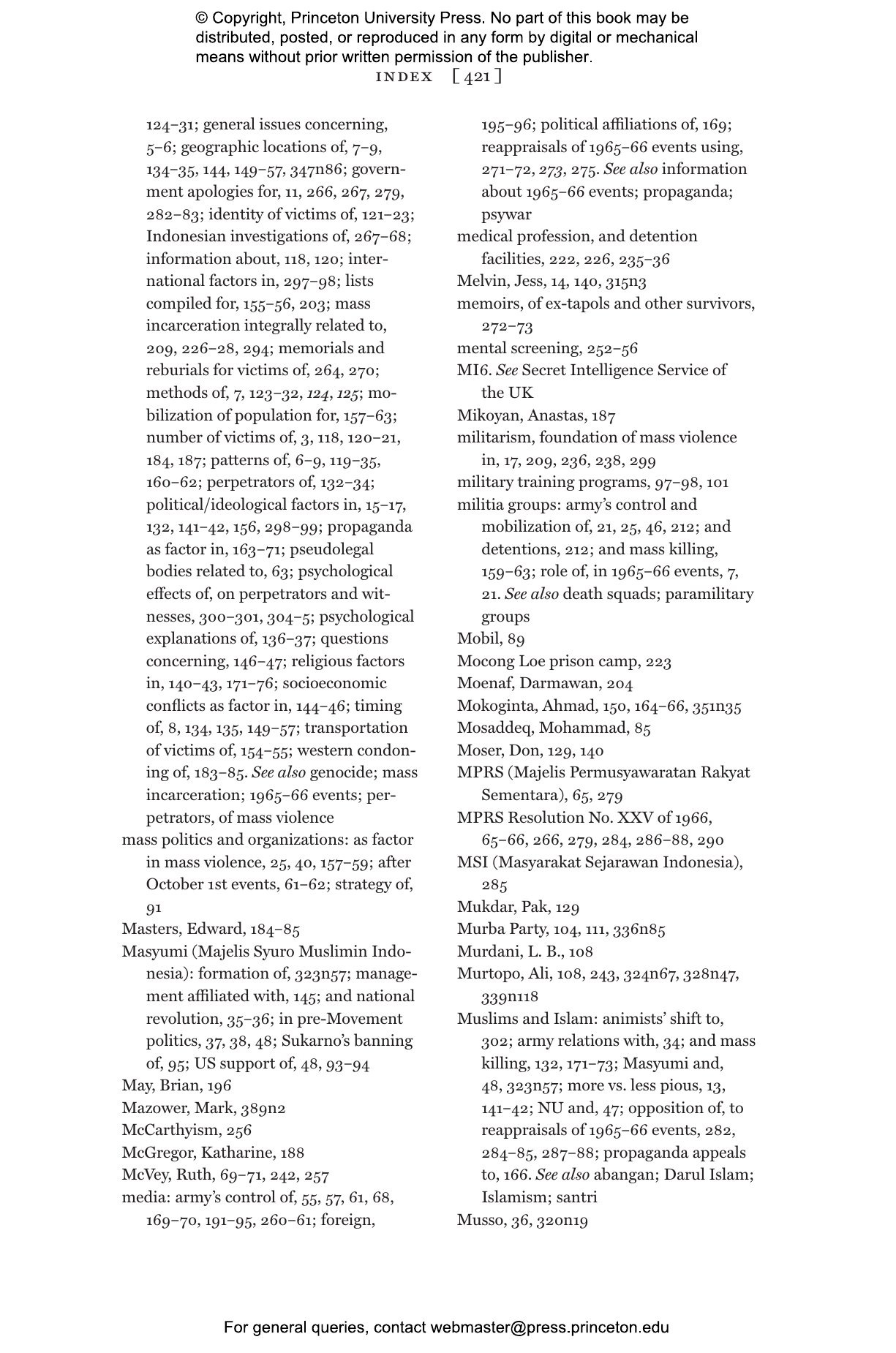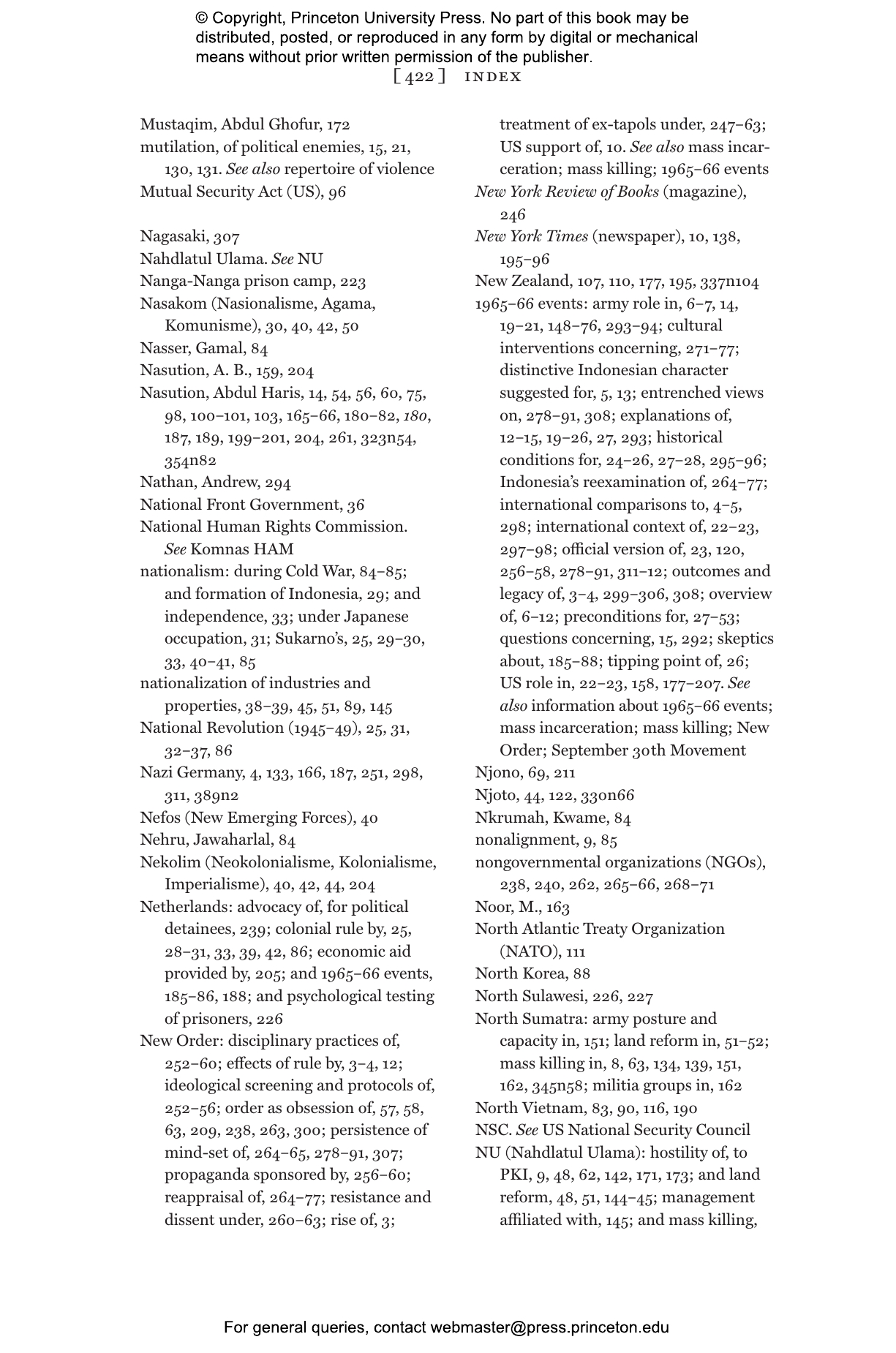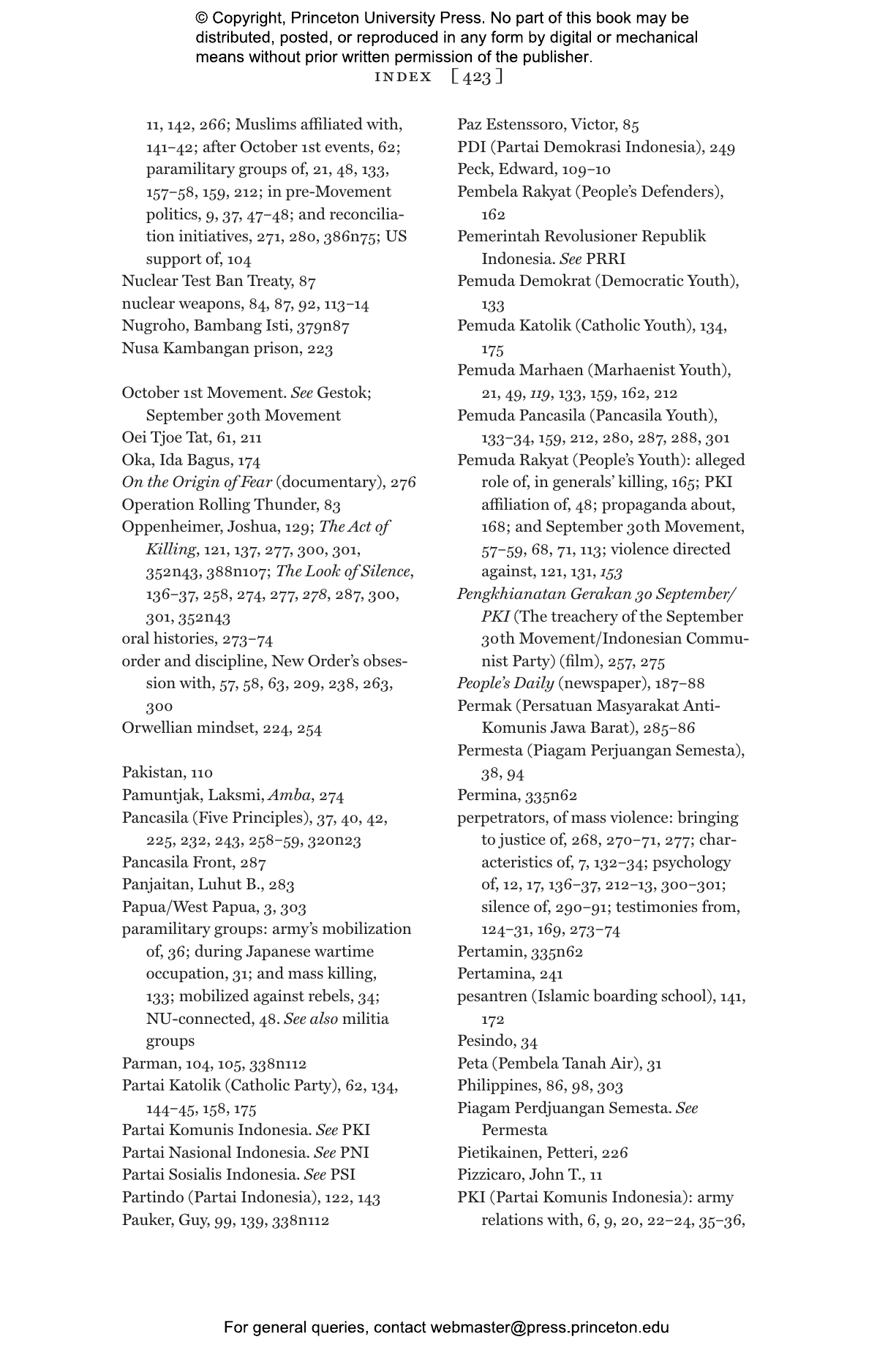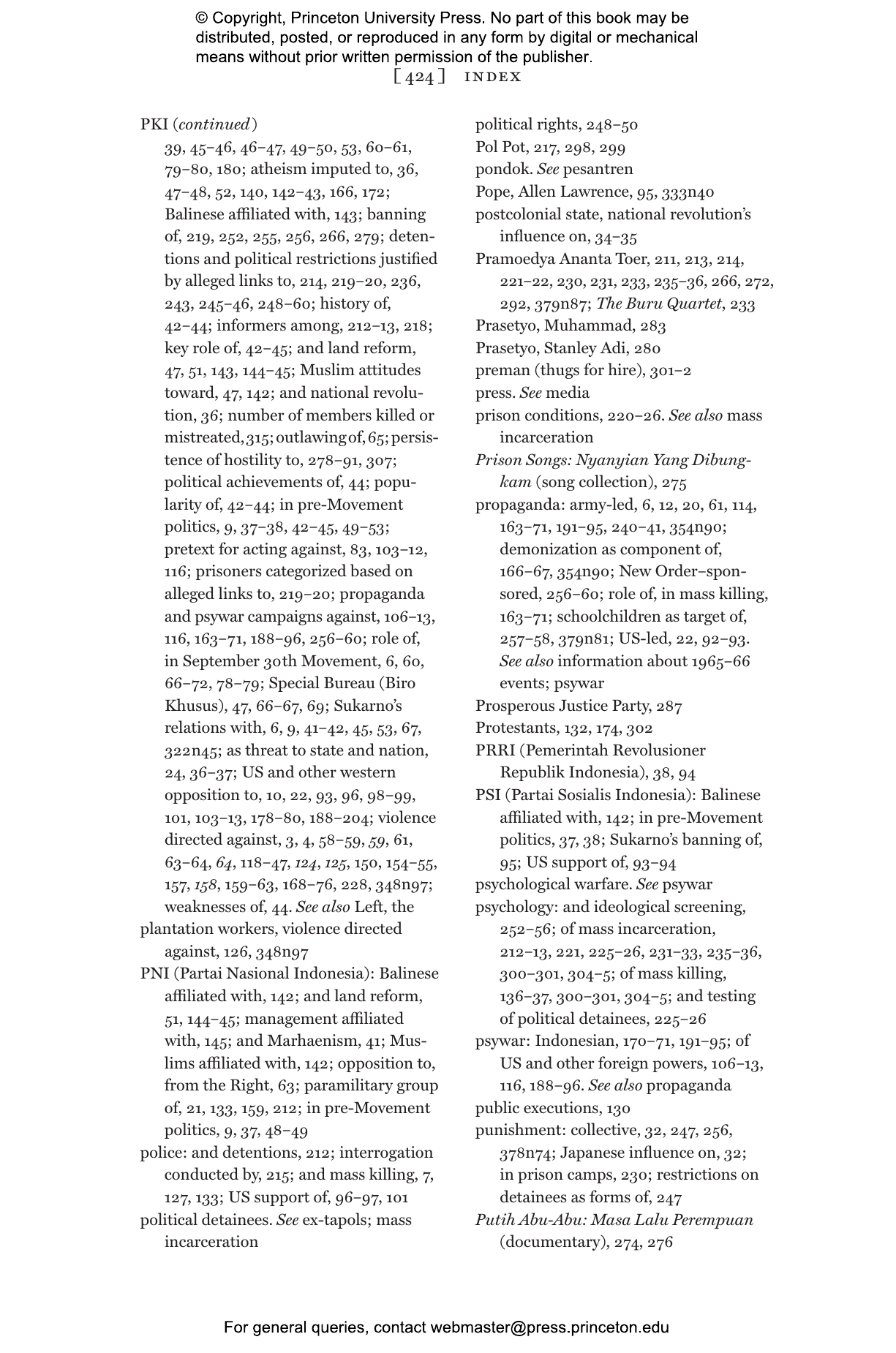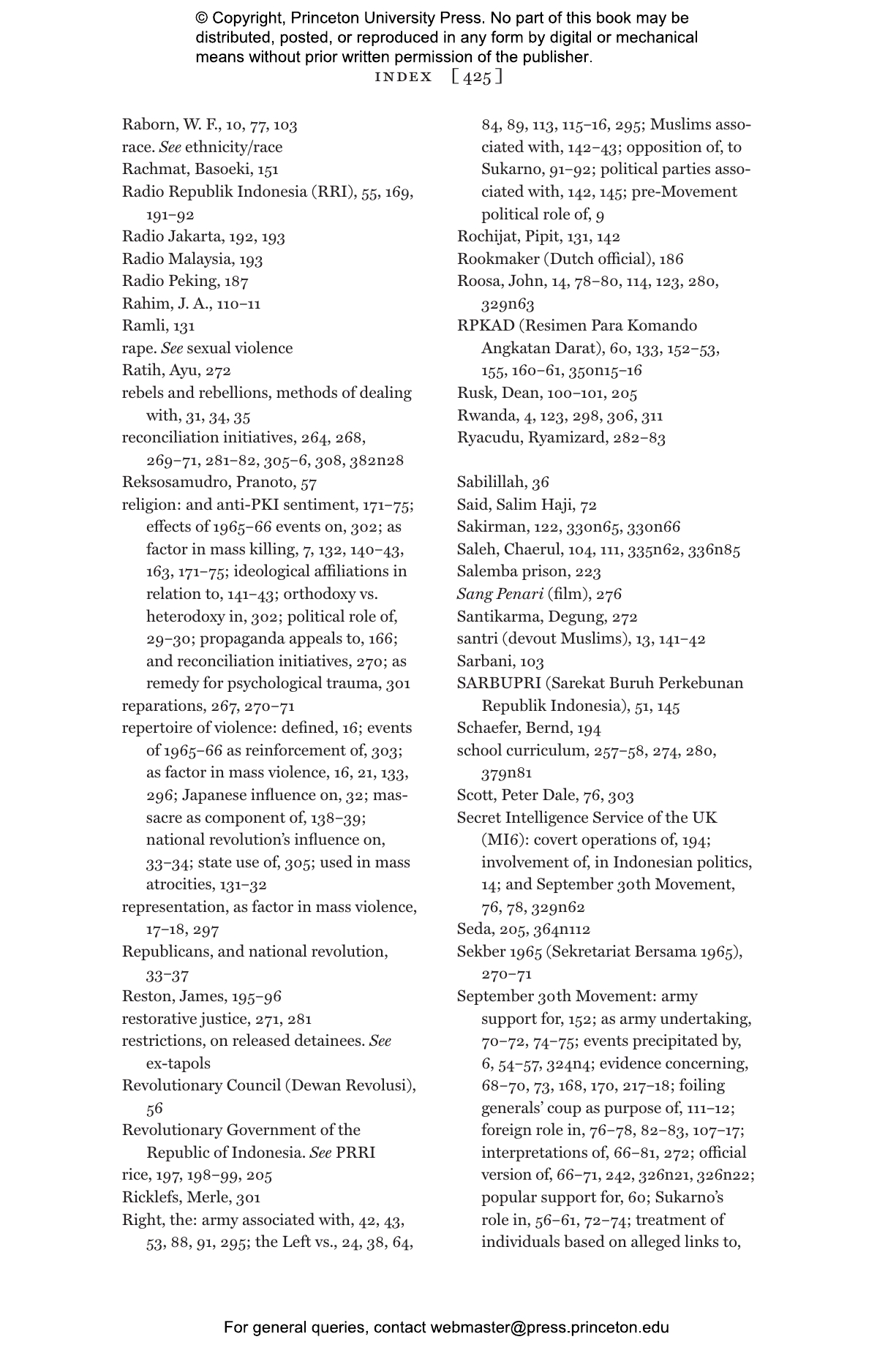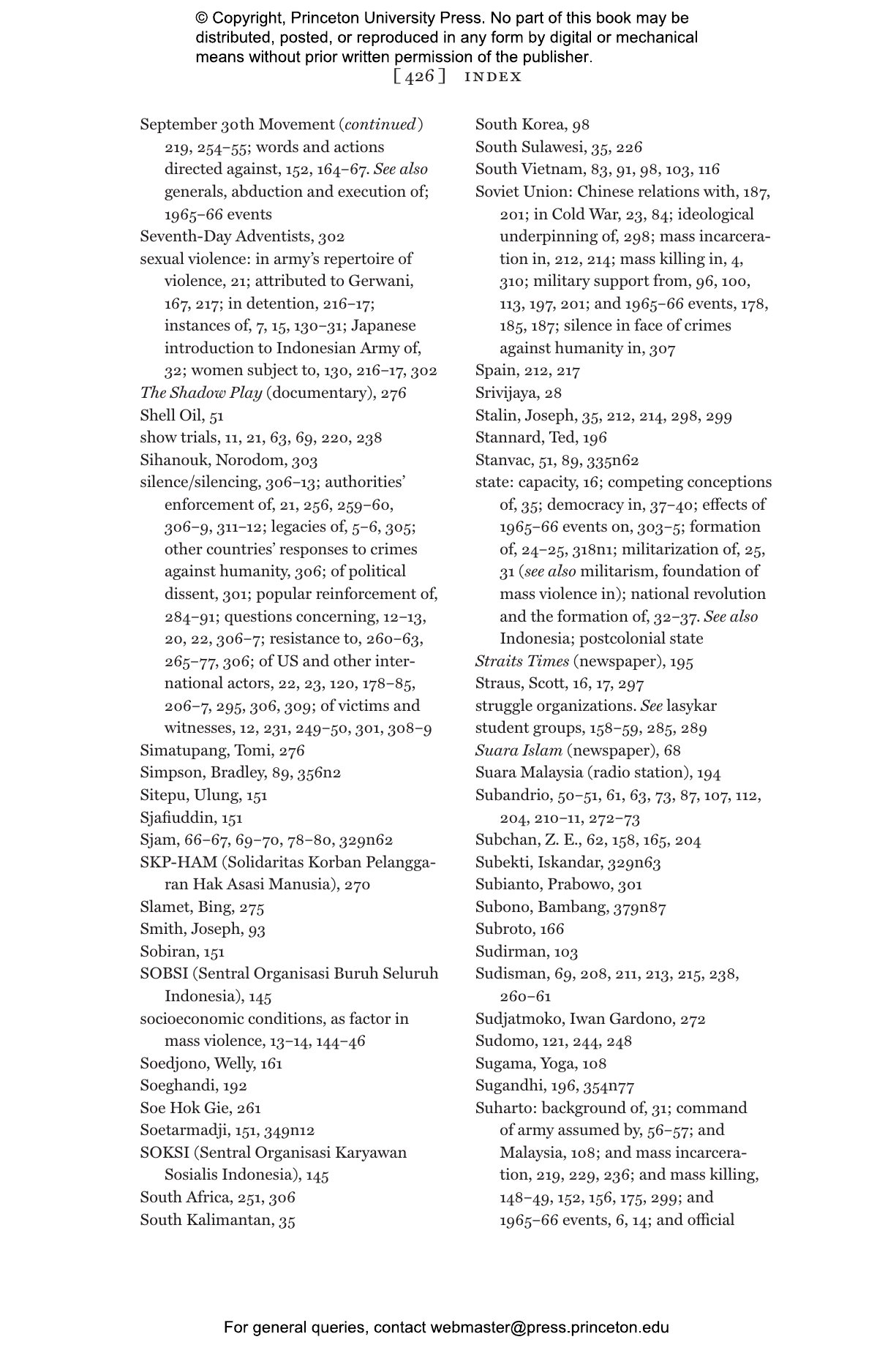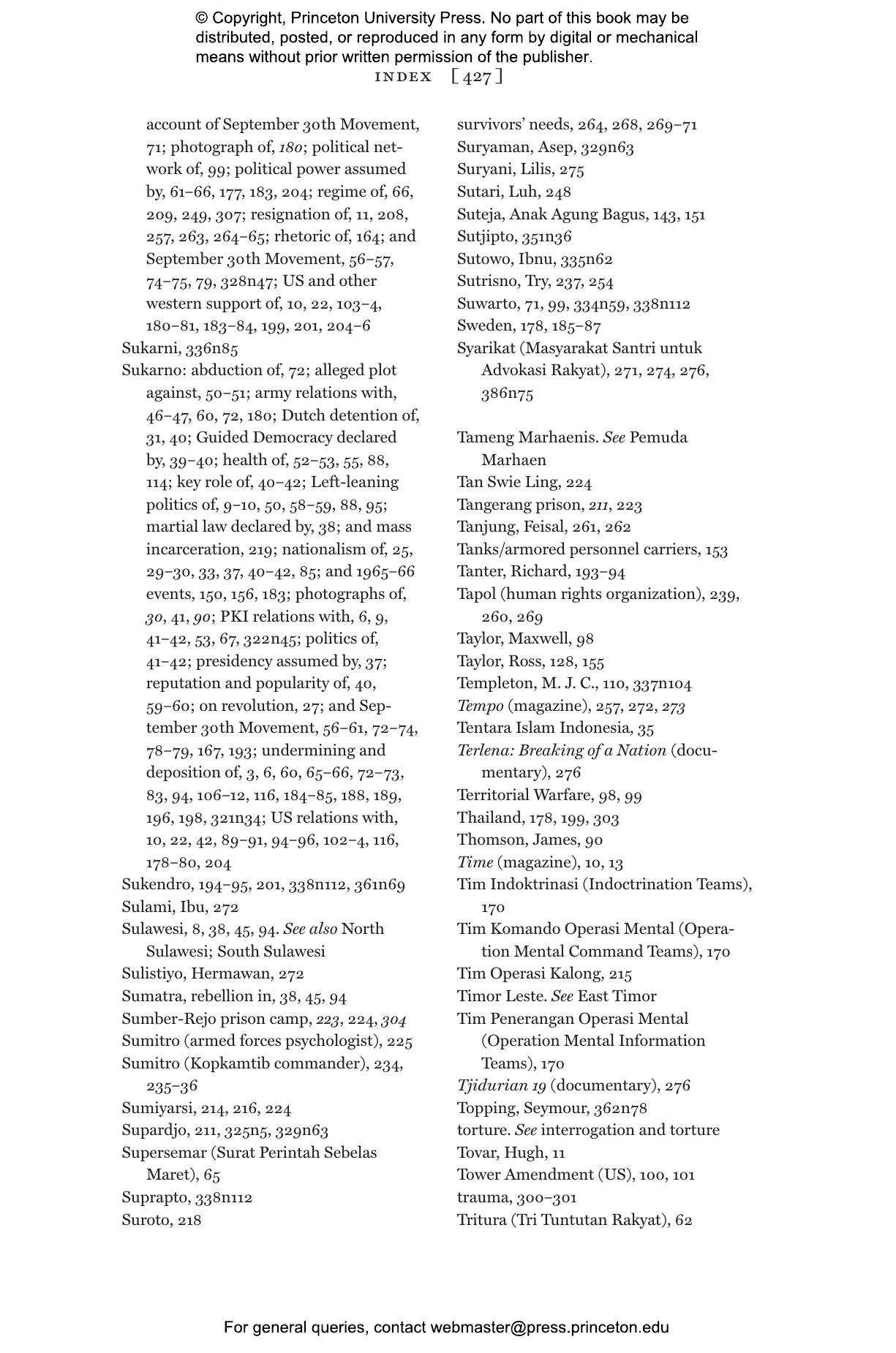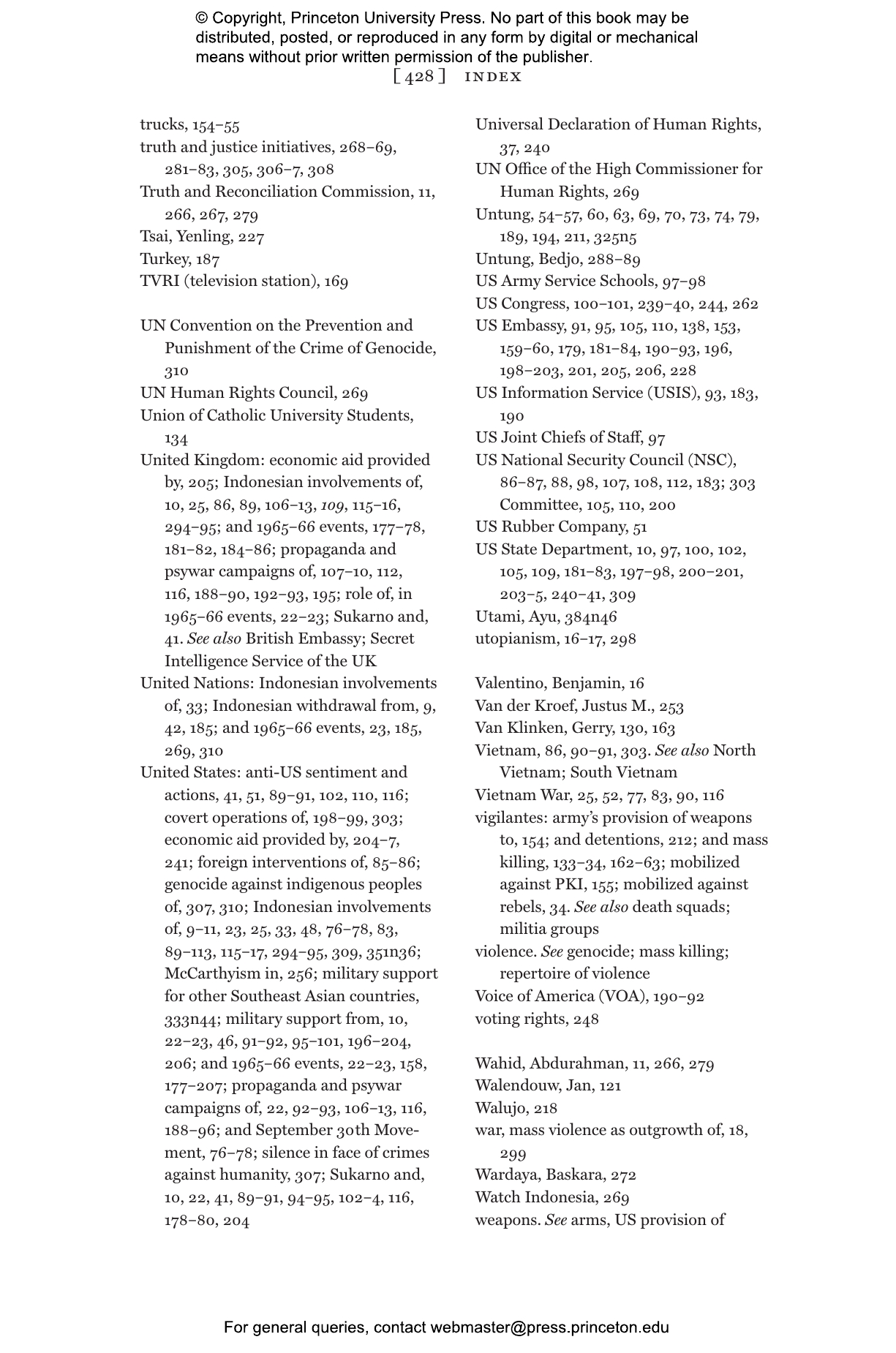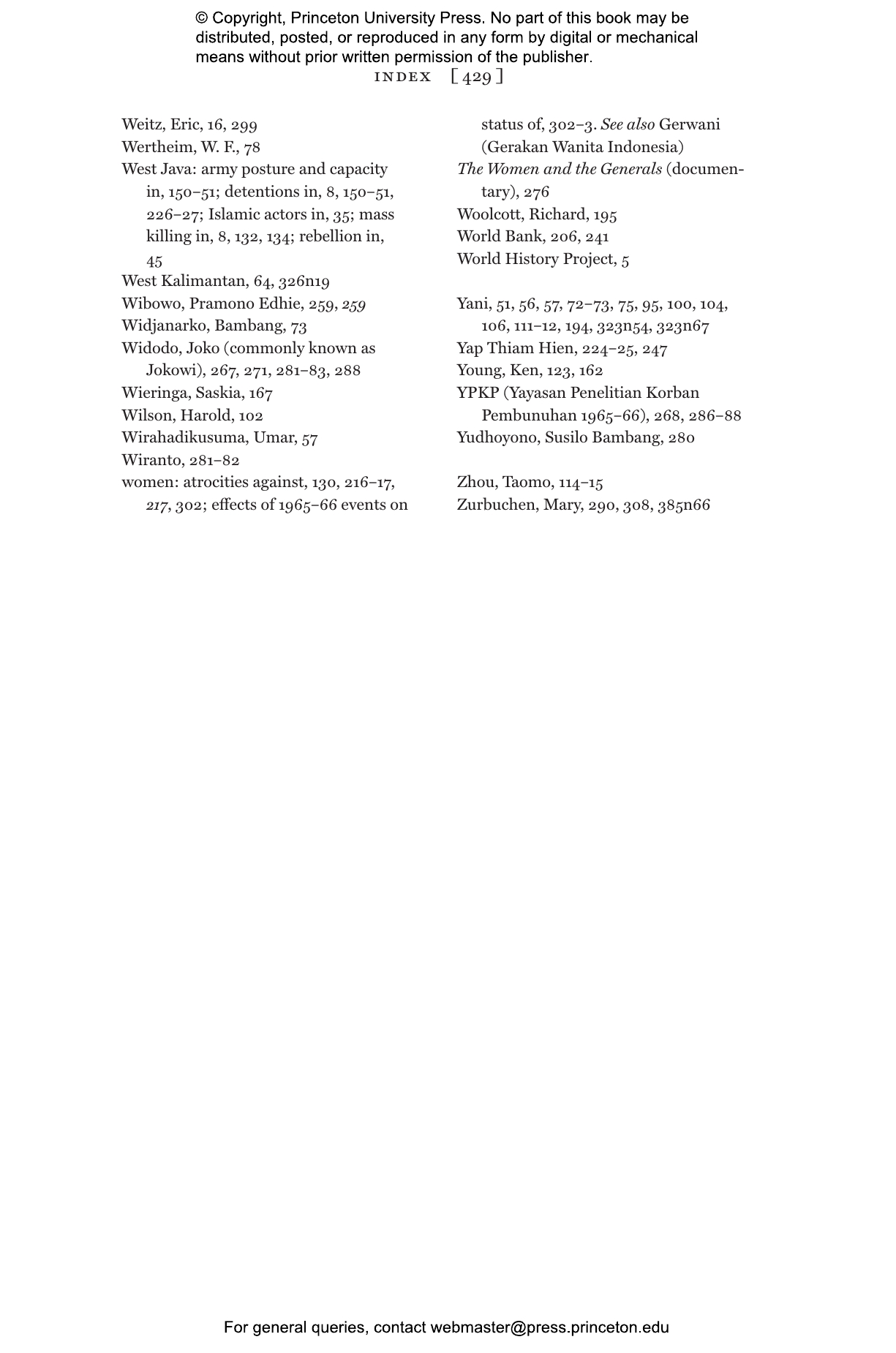The Killing Season explores one of the largest and swiftest, yet least examined, instances of mass killing and incarceration in the twentieth century—the shocking antileftist purge that gripped Indonesia in 1965–66, leaving some five hundred thousand people dead and more than a million others in detention.
An expert in modern Indonesian history, genocide, and human rights, Geoffrey Robinson sets out to account for this violence and to end the troubling silence surrounding it. In doing so, he sheds new light on broad and enduring historical questions. How do we account for instances of systematic mass killing and detention? Why are some of these crimes remembered and punished, while others are forgotten? What are the social and political ramifications of such acts and such silence?
Challenging conventional narratives of the mass violence of 1965–66 as arising spontaneously from religious and social conflicts, Robinson argues convincingly that it was instead the product of a deliberate campaign, led by the Indonesian Army. He also details the critical role played by the United States, Britain, and other major powers in facilitating mass murder and incarceration. Robinson concludes by probing the disturbing long-term consequences of the violence for millions of survivors and Indonesian society as a whole.
Based on a rich body of primary and secondary sources, The Killing Season is the definitive account of a pivotal period in Indonesian history. It also makes a powerful contribution to wider debates about the dynamics and legacies of mass killing, incarceration, and genocide.
Awards and Recognition
- Winner of the George McT. Kahin Prize, Association for Asian Studies
- Winner of the Distinguished Book Award in Non-U.S. History, Society for Military History
- Winner of the Raphael Lemkin Book Award, Institute for the Study of Genocide
- Longlisted for the 2019 ICAS Book Prize in Humanities, International Convention of Asia Scholars
- One of the Financial Times' Best Books of 2018: History
- One of Foreign Affairs' Picks for Best of Books 2018
"[Robinson’s] book skilfully combines a human rights advocate’s anger with academic rigour."—Julia Lovell, The Guardian
"In this masterful account . . . the killings receive the comprehensive, scholarly treatment they have long needed."—Tony Barber, Financial Times
"Robinson [displays his] ability to combine, with chilling calm, a broad theoretical analysis and comparative analysis with a detailed understanding of events."—Adrian Vickers, Times Literary Supplement
"A useful contribution to regional history and a much-needed voice in the ‘path of silence’ that followed a murderous time."—Kirkus
"Robinson’s work is painstakingly careful and deserves as wide a readership as possible. . . . The real importance of this book is that it exposes in meticulous detail a modern genocide from the inside out. Governments and politicians could learn from this to prevent genocides before they even happen."—Richard Cockett, Literary Review
"This meticulous scholarly analysis of the country's institutions comprehensively investigates the economic, religious, ethnic, and socioeconomic factors behind the arrests, rape, torture, and murder that were inflicted on communist true believers and innocents alike. Robinson's authoritative scholarly work is an indispensable resource for specialists seeking a comprehensive overview of this little-studied period in Southeast Asian history."—Publisher's Weekly
"Crucial. . . . The Killing Season is clearly and elegantly written, the prose often driven by a controlled anger."—Alex de Jong, Jacobin
"The facts and horrors of [the Indonesian massacres of 1965-66] are the subject of Geoffrey B. Robinson’s essential volume, The Killing Season. In careful detail, Robinson lays out the background for the slaughter and its execution, laying blame squarely on those Indonesians and Western powers responsible for what he calls a crime against humanity—the aftereffects of which are still apparent today."—Mitchell Abidor, Jewish Currents
"Robinson’s The Killing Season is a vital work in documenting one of the worst mass killings of the 20th century — and exposing the complicity of Western governments."—Green Left Weekly
"An authoritative and harrowing account of the massacres in Indonesia and their aftermath. . . . Robinson spares no one, but his indictment is nuanced and rises above Cold War passions. . . . The findings of Robinson’s painstaking scholarship may shock those accustomed to triumphal readings of the Cold War, but Robinson provides a more accurate, if less inspirational, perspective on U.S. policy."—Gary Bass, Foreign Affairs
"This is an important and extensively researched account about the activities and consequences of state terrorism, using the Indonesian experience as its case study."—Joshua Sinai, Perspectives on Terrorism
"Robinson’s work is a valuable contribution to the ongoing debate on the 1965 events that draws on a rich body of primary and secondary sources. The book is an easy read when it comes to language and an enlightening read when it comes to the details of army operation and strategies. It is a must-read for Indonesianists, and many part of the book might also draw the attention of people dedicated to genocide and military studies in general."—Timo Duile, Austrian Journal of Southeast Asian Studies
"Robinson’s masterly account of the terrible slaughters that took place in Indonesia offers important reflections on the nature of mass violence."—Christopher Hale, History Today
"An authoritative and harrowing account of the massacres in Indonesia and their aftermath."—Gary J. Bass, Foreign Affairs
"This book is recommended for those trying to understand the causes, both domestic and international, behind the massacres of 1965-66. It is also an insight into Indonesia’s continuing struggle to come to terms with this painful episode in its history."—Frank Beyer, Inside Indonesia
"Robinson, an expert on human rights, concludes with a thought provoking analysis of why mass killings and illegal detentions take place, and considers the long-term consequences of the events of 1965-1966 for Indonesian society. He has written a clear and well documented book which is essential reading for anyone interested in modern Indonesian history."—Roger Hamilton, Asian Affairs
"An encyclopedic exploration into this event, why it happened, who supported it, and what its impact on the nation has been. . . . The Killing Season is a very powerful book. I strongly recommend it."—Erik Loomis, Lawyers, Guns & Money
"Geoffrey Robinson emphasizes that one of his main objectives in writing this book was to ‘disturb the troubling silence.’ I have waited many years for such a book to appear, one which I hoped would help to pierce the West’s historical amnesia. Robinson has written an extraordinary work that does full justice to this neglected topic. Deeply researched and packed with fascinating and revelatory information, The Killing Season is considered, scholarly, well-argued, and absolutely gripping reading. As soon as I finished reading this book, I wanted to dive right back into it again."—Gregory Elich, CounterPunch
"Remarkable."—Ken Silverstein, New Republic
"I see The Killing Season as a must-read for anyone interested in Indonesia and broadly defined human rights issues of Southeast Asia for its unparalleled comprehensiveness, solid archival research, and elegant writing style."—Kankan Xie, New Books Asia
"Of the world's mass killings since 1945, the genocide in Indonesia stands out as remaining unfamiliar to many, and still presenting unsolved questions while possessing high death tolls. This book is essential for understanding the Indonesian tragedy and why humans sometimes do terrible things on a vast scale."—Jared Diamond, University of California, Los Angeles
"The Killing Season left me heartbroken. I've spent fifteen years exposing the consequences of impunity for Indonesia’s genocide, and it was a painful catharsis to read this, the first morally honest, timelessly brilliant history of the killings as a whole. Geoffrey Robinson’s tone is a mixture of gentleness, empathy, and quiet anger—as though he knows Indonesia’s terrible silence can only be broken with grace. But this book also breaks an American silence, for Robinson reveals that the massacres would never have happened without U.S. support: this genocide is an American crime too. The Killing Season is a breathtaking, essential book."—Joshua Oppenheimer, director of The Act of Killing and The Look of Silence
"Finally, a full accounting of one of the most brutal events in twentieth-century history. Geoffrey Robinson's The Killing Season documents, in chilling detail, the mass murder of half a million Indonesians between 1965 and 1966. Based on fine-grained research, Robinson's book is a model of analytical and moral clarity, shining a damning light on U.S. complicity in the atrocity. This is a tour de force."—Greg Grandin, author of Fordlandia
"This elegantly written and carefully crafted book provides the single most sustained and systematic evaluation of the competing and contradictory theories concerning the coup which helped to precipitate the mass killings of late 1965 and early 1966 in Indonesia. Robinson's arguments are clear, coherent, and compelling, and the evidence presented is impressively well-documented. This is the definitive account of a highly important aspect of Indonesian history."—John T. Sidel, London School of Economics and Political Science
"This masterful and engrossing book illuminates the mass violence and incarceration that took place during the transition to the three-decade Suharto dictatorship in Indonesia. Displaying a superb command of Indonesian history and sources, The Killing Season is an important corrective to conventional wisdom about a little-known genocidal campaign that destroyed an estimated 500,000 victims."—Jens Meierhenrich, London School of Economics and Political Science
